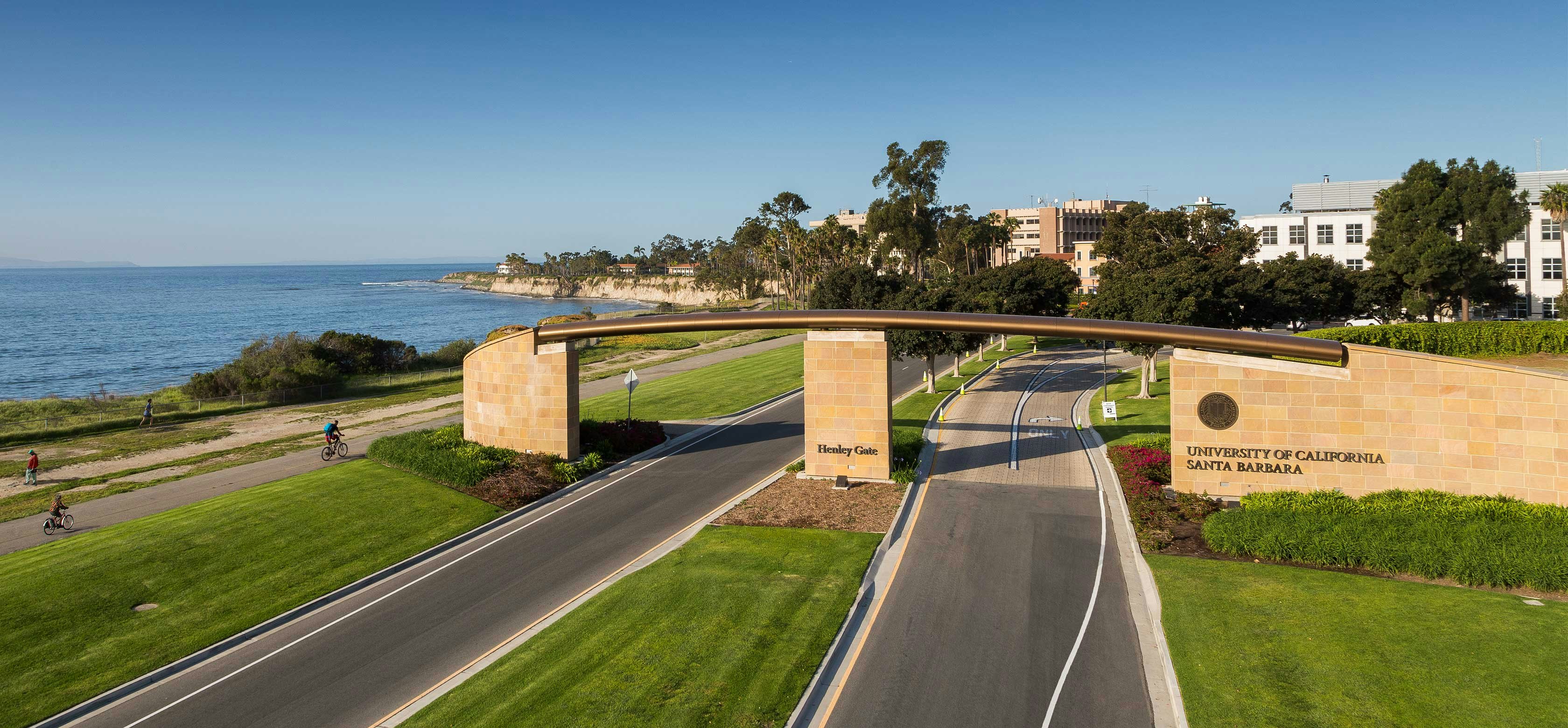

University of California, Santa Barbara | UCSB
- Cost & scholarships
- Essay prompt
Want to see your chances of admission at University of California, Santa Barbara | UCSB?
We take every aspect of your personal profile into consideration when calculating your admissions chances.
University of California, Santa Barbara | UCSB’s 2023-24 Essay Prompts
Select-a-prompt short responses.
Please respond to any 4 of the 8 questions below.We realize that not all questions apply to all applicants, so be sure to select the 4 questions that you believe give us the best information about you.All 8 questions are given equal consideration in the application review process. Responses to each question should be between 250-350 words.
Describe an example of your leadership experience in which you have positively influenced others, helped resolve disputes or contributed to group efforts over time.
Every person has a creative side, and it can be expressed in many ways: problem solving, original and innovative thinking, and artistically, to name a few. Describe how you express your creative side.
What would you say is your greatest talent or skill? How have you developed and demonstrated that talent over time?
Describe how you have taken advantage of a significant educational opportunity or worked to overcome an educational barrier you have faced.
Describe the most significant challenge you have faced and the steps you have taken to overcome this challenge. How has this challenge affected your academic achievement?
Think about an academic subject that inspires you. Describe how you have furthered this interest inside and/or outside of the classroom.
What have you done to make your school or your community a better place?
Beyond what has already been shared in your application, what do you believe makes you stand out as a strong candidate for admissions to the University of California?
What will first-time readers think of your college essay?
- Student Resources
- Applying to College
Writing the Essay
General advice.
- Finish the rest of the application first. Listing all of the activities, classes, and awards will remind you of things that might be good to write about.
- Brainstorm on several topics.
- Choose a topic you can say something meaningful about (not the one you think will impress admissions readers). Admissions officers read thousands of essays and can spot when someone is writing about an AP course they took just because they think it will make them sound smart.
- Ask parents, teachers, and friends for ideas about your good qualities or accomplishments. Sometimes it is difficult for us to see the things about ourselves that are obvious to others.
Once You Begin Writing
- Stick to one or two important “stories.” Any more and you’ll dilute things to the point where they have little impact.
- Grab the reader’s interest from the start.
- Show, don’t tell—give concrete examples of something instead of just saying it.
- Make sure you answer the question instead of going on a tangent.
- Show who you are, not who you think the admissions officers want to see.
- Don’t just list information that is already in your application—you are missing the opportunity to tell the reader something new.
- Include the “So What?” Why did you tell this story? How did it impact your life? What does it show about you? How is it important to the question?
After You Write
- Write more than one draft. You probably haven’t written something like this before and it will take more than one attempt to get it right.
- Don’t be afraid to scrap your first draft and start from scratch.
- Ask others for feedback, but have useful questions for them. You know your friend will say “It’s good” before you even ask. So ask things like “Did it grab your interest from the start?” “What did you think I was trying to say?” and “Did you think it was funny/sad/passionate/(whatever tone you were going for)?”
- Proofread, and read it over carefully even after you spellcheck! Sometimes it tries to fix your mistakes by replacing them with the wrong word.
Common Application
Essay(250-500 words).
- There are several topics, as well as the option to choose your own topic. All the questions are just basically saying “Tell us about yourself.” The specific questions are just trying to make it easier for you to talk about your values and other aspects of yourself.
- Each question is just as valid as the other ones. There are no questions that “get you more points” if you pick that one.
- Some of the questions ask you to talk about an issue, historical figure, etc. Do NOT turn your answer into a report on this. Each one asks you to relate the topic to yourself—how has it influenced you? Why is it important to you? You are only using that topic as a way to get at your life and values.
UC Personal Insight Questions
(8 questions, you select 4; to answer, 350 words maximum each).
- You will have 8 questions to choose from. You must respond to only 4 of the 8 questions. Which questions you choose to answer is entirely up to you.
- Each response is limited to a maximum of 350 words.
To look at the personal insight questions and for helpful tips on how to respond to each one, learn more: https://admission.universityofcalifornia.edu/how-to-apply/applying-as-a-freshman/personal-insight-questions.html
For additional guidance EAOP has come up with 5 general topics to help you answer the personal insight questions. As you write your UC personal essays think about the most relevant and significant experiences that best reflect your individual circumstances for the topics below. You can use one of the topics to answer more than one of the insight questions. (ex. Leadership experience could fit with questions 1 and 7, an obstacle experience could fit questions 4,5 and 7)
Overcoming obstacles/challenges
- Diversity of perspective
- Goals for the future.
Not just offices and titles. Think about things YOU made happen that wouldn’t have happened without you. Think about your accomplishments and what you learned from the experience. What are your responsibilities? And your leadership role doesn’t necessarily have to be limited to school activities. For example, do you help out or take care of your family?
This is a good opportunity to talk about any obstacles you’ve faced and what you’ve learned from the experience. A challenge could be personal, or something you have faced in your community or school. Why was the challenge significant to you? Did responsibilities and chores limit your activities and studies? Did a disability make things more difficult academically or socially?
Diversity of Perspective
Highlight your cultural background and experiences. Learning a second language, moving from a different country, had to balance your parents’ culture against American culture ect. What things have made you see the world differently? How have they impacted your life?
Think about your accomplishments and what you learned from the experience. Do you have a passion for music, theater, visual art, dance, etc.? What have you gained from it that has affected other parts of your life? What kinds of things have you worked hard to achieve? In what ways did you show your determination and commitment to accomplish those things? How does your commitment/creativity influence your decisions inside or outside the classroom?
Goals for the future
Goals can be general things like helping others, having your own business, helping your family, or being a good role model for your siblings. What do you want for your future? Where do you see yourself ten years from now?
Writing & Languages
Writing & Languages provide fundamental support for many courses.
Writing services are available for any writing at any stage of the writing process, from analyzing a prompt and brainstorming to polishing a final draft. Meet with a writing tutor if you are struggling to get started, if you aren't sure how to structure a paper, or if you need help citing your sources. We will look at what you're working on together to assess where you are and what your next steps can be.
Language tutors for several different languages are available during drop-in hours to help you with exercises and assignments in your language courses. We're also here for you if you just want to brush up on your conversational skills. Languages offered vary by year and availability of specific tutors.
Services Offered
Drop-in hours.
are 30-minute sessions with a writing tutor with no prior registration required.
Appointments
are scheduled 30-minute sessions with a writing tutor, available in person or online.
are one-hour one-off structured discussions around a specific writing topic.
Online Resources
are handouts and worksheets to provide guidance for different writing topics.
Study Room Information
Studying for a specific course? CLAS Study Rooms are open for student use, and are where tutors host course specific drop-in hours.
Writing & Languages Lab: SRB 3231
Hours: Monday-Thursday 10 A.M.-5 P.M., Friday 10 A.M.-2 P.M.
Subjects/topics
Writing topics.
Assignment/Prompt Review
Citing Sources
Clarity/Logic
Structure/Organization
Thesis Development
Statements of Purpose
Workshop Topics
Assignment Analysis
Pre-Writing: Getting Started
Short Story Writing
Writing Process: What’s Yours?
Don't see your course?
Academic Skills Suggest a course
Coordinator Contact Info
Kristen Ikeda Yoza | [email protected]
Home — Application Essay — University — UC Santa Barbara
UC Santa Barbara Admission Essays
What i really learned from plasma physics internship: college admission essay sample.
The smell of burning metal tickled my nose as I stared intently at the oscilloscope on my messy desk. I looked back at the breadboard, and quickly realized what I had done. I hurried to rip the IC chip out of the circuit, burning my…
Through and Through, I Stay Like Tofu: College Admission Essay Sample
I sat there staring at it. The so called “blob” of the food world. That infamously taboo food with a worse reputation than Lindsey Lohan. Its unpleasant corners, soft texture, and initial lack of flavor strike fear into the hearts of its meat-craving nay-sayers. Two…
The Walk that Changed My Life: College Admission Essay Sample
It is common in literature, poetry, and musical lyrics to use walking as a metaphor for life. This past summer, that metaphor took on a whole new meaning for me. In twenty-six long days, I walked about 700 kilometers across Northern Spain — from Pamplona…
The Summer of 2006: College Admission Essay Sample
About 14 million people in the world identify themselves as Jewish, but what does that really mean? I struggle with this question because, to me, Judaism represents more of a culture than a religion. While I might say prayers and light the Shabbat candles at…
The Scribe: College Admission Essay Sample
The clock strikes midnight, signaling we are into our tenth hour in the room. Hunched over computers, we work tirelessly on the school magazine, The Scribe. My creative journey to this moment began by writing for the features section, where I sought to unravel complex…
Small but Essential Outreach to the Community: College Admission Essay Sample
Every birthday of mine there is one specific thing I look forward to: my friend Tamara’s handmade card. Every year she makes me a homemade card and every year, I’m warmed by her thoughtfulness, love, and care. It’s the small yet thoughtful gestures like these…
Scheherezade: College Admission Essay Sample
My name is Scheherezade. I am about to die at the hands of a King, but if I can captivate him through my stories I might be able to stay alive for just one more night. The orchestra drops to quiet plucking, and I take…
Roots and Shoots - Helping to Save the Environment: College Admission Essay Sample
The growling clouds had barely begun to slink away from the rain-lashed sky when a pale face bounded gleefully to the soggy window, her smile reflected in the prismatic droplets clinging to the glass. There was only one thing on her mind today: the squirming,…
Potential to Contribute: College Admission Essay Sample
“Cold weather means nothing. Rainy days don’t matter. And a national holiday means two practices instead of one.” Although the author is unknown to me, that quote has been my mantra for the past several years. Most people look forward to a holiday, viewing it…
Personal Statement Essay: College Admission Essay Sample
“You’re in the wrong line, Melody!” my former classmate shouted across the blacktop. Heads turned and people stared, and my blushing cheeks complemented my hot pink shirt. I felt embarrassed and proud at the same time. On a hot September day in 2001, I skipped…
Get professional help in 5 minutes

— EST. 1909 —
25,057 Students
5221 Cheadle Hall, Santa Barbara, CA 93106
- American University
- University of Colorado - Boulder
- University of Michigan
- University of Miami
- University of Maryland, College Park
- University of San Diego
- Rutgers University
- Wesleyan University
- University of Maine
- University of Denver
We use cookies to personalyze your web-site experience. By continuing we’ll assume you board with our cookie policy .
- Instructions Followed To The Letter
- Deadlines Met At Every Stage
- Unique And Plagiarism Free
Freshman requirements
- Subject requirement (A-G)
- GPA requirement
- Admission by exception
- English language proficiency
- UC graduation requirements
Additional information for
- California residents
- Out-of-state students
- Home-schooled students
Transfer requirements
- Understanding UC transfer
- Preparing to transfer
- UC transfer programs
- Transfer planning tools
International applicants
- Applying for admission
- English language proficiency (TOEFL/IELTS)
- Passports & visas
- Living accommodations
- Health care & insurance
AP & Exam credits
Applying as a freshman
- Filling out the application
- Dates & deadlines
Personal insight questions
- How applications are reviewed
- After you apply
Applying as a transfer
Types of aid
- Grants & scholarships
- Jobs & work-study
- California DREAM Loan Program
- Middle Class Scholarship Program
- Blue and Gold Opportunity Plan
- Native American Opportunity Plan
- Who can get financial aid
- How aid works
- Estimate your aid
Apply for financial aid
- Cal Dream Act application tips
- Tuition & cost of attendance
- Glossary & resources
- Santa Barbara
- Campus program & support services
- Check majors
- Freshman admit data
- Transfer admit data
- Native American Opportunity Plan
- You will have 8 questions to choose from. You must respond to only 4 of the 8 questions.
- Each response is limited to a maximum of 350 words.
- Which questions you choose to answer is entirely up to you. However, you should select questions that are most relevant to your experience and that best reflect your individual circumstances.
Keep in mind
- All questions are equal. All are given equal consideration in the application review process, which means there is no advantage or disadvantage to choosing certain questions over others.
- There is no right or wrong way to answer these questions. It’s about getting to know your personality, background, interests and achievements in your own unique voice.
- Use the additional comments field if there are issues you'd like to address that you didn't have the opportunity to discuss elsewhere on the application. This shouldn't be an essay, but rather a place to note unusual circumstances or anything that might be unclear in other parts of the application. You may use the additional comments field to note extraordinary circumstances related to COVID-19, if necessary.
Questions & guidance
Remember, the personal insight questions are just that—personal. Which means you should use our guidance for each question just as a suggestion in case you need help. The important thing is expressing who you are, what matters to you and what you want to share with UC.
1. Describe an example of your leadership experience in which you have positively influenced others, helped resolve disputes or contributed to group efforts over time. Things to consider: A leadership role can mean more than just a title. It can mean being a mentor to others, acting as the person in charge of a specific task, or taking the lead role in organizing an event or project. Think about what you accomplished and what you learned from the experience. What were your responsibilities?
Did you lead a team? How did your experience change your perspective on leading others? Did you help to resolve an important dispute at your school, church, in your community or an organization? And your leadership role doesn't necessarily have to be limited to school activities. For example, do you help out or take care of your family? 2. Every person has a creative side, and it can be expressed in many ways: problem solving, original and innovative thinking, and artistically, to name a few. Describe how you express your creative side. Things to consider: What does creativity mean to you? Do you have a creative skill that is important to you? What have you been able to do with that skill? If you used creativity to solve a problem, what was your solution? What are the steps you took to solve the problem?
How does your creativity influence your decisions inside or outside the classroom? Does your creativity relate to your major or a future career? 3. What would you say is your greatest talent or skill? How have you developed and demonstrated that talent over time? Things to consider: If there is a talent or skill that you're proud of, this is the time to share it.You don't necessarily have to be recognized or have received awards for your talent (although if you did and you want to talk about it, feel free to do so). Why is this talent or skill meaningful to you?
Does the talent come naturally or have you worked hard to develop this skill or talent? Does your talent or skill allow you opportunities in or outside the classroom? If so, what are they and how do they fit into your schedule? 4. Describe how you have taken advantage of a significant educational opportunity or worked to overcome an educational barrier you have faced. Things to consider: An educational opportunity can be anything that has added value to your educational experience and better prepared you for college. For example, participation in an honors or academic enrichment program, or enrollment in an academy that's geared toward an occupation or a major, or taking advanced courses that interest you; just to name a few.
If you choose to write about educational barriers you've faced, how did you overcome or strive to overcome them? What personal characteristics or skills did you call on to overcome this challenge? How did overcoming this barrier help shape who you are today? 5. Describe the most significant challenge you have faced and the steps you have taken to overcome this challenge. How has this challenge affected your academic achievement? Things to consider: A challenge could be personal, or something you have faced in your community or school. Why was the challenge significant to you? This is a good opportunity to talk about any obstacles you've faced and what you've learned from the experience. Did you have support from someone else or did you handle it alone?
If you're currently working your way through a challenge, what are you doing now, and does that affect different aspects of your life? For example, ask yourself, How has my life changed at home, at my school, with my friends or with my family? 6. Think about an academic subject that inspires you. Describe how you have furthered this interest inside and/or outside of the classroom. Things to consider: Many students have a passion for one specific academic subject area, something that they just can't get enough of. If that applies to you, what have you done to further that interest? Discuss how your interest in the subject developed and describe any experience you have had inside and outside the classroom such as volunteer work, internships, employment, summer programs, participation in student organizations and/or clubs and what you have gained from your involvement.
Has your interest in the subject influenced you in choosing a major and/or future career? Have you been able to pursue coursework at a higher level in this subject (honors, AP, IB, college or university work)? Are you inspired to pursue this subject further at UC, and how might you do that?
7. What have you done to make your school or your community a better place? Things to consider: Think of community as a term that can encompass a group, team or a place like your high school, hometown or home. You can define community as you see fit, just make sure you talk about your role in that community. Was there a problem that you wanted to fix in your community?
Why were you inspired to act? What did you learn from your effort? How did your actions benefit others, the wider community or both? Did you work alone or with others to initiate change in your community? 8. Beyond what has already been shared in your application, what do you believe makes you a strong candidate for admissions to the University of California? Things to consider: If there's anything you want us to know about you but didn't find a question or place in the application to tell us, now's your chance. What have you not shared with us that will highlight a skill, talent, challenge or opportunity that you think will help us know you better?
From your point of view, what do you feel makes you an excellent choice for UC? Don't be afraid to brag a little.
Writing tips
Start early..
Give yourself plenty of time for preparation, careful composition and revisions.
Write persuasively.
Making a list of accomplishments, activities, awards or work will lessen the impact of your words. Expand on a topic by using specific, concrete examples to support the points you want to make.
Use “I” statements.
Talk about yourself so that we can get to know your personality, talents, accomplishments and potential for success on a UC campus. Use “I” and “my” statements in your responses.
Proofread and edit.
Although you will not be evaluated on grammar, spelling or sentence structure, you should proofread your work and make sure your writing is clear. Grammatical and spelling errors can be distracting to the reader and get in the way of what you’re trying to communicate.
Solicit feedback.
Your answers should reflect your own ideas and be written by you alone, but others — family, teachers and friends can offer valuable suggestions. Ask advice of whomever you like, but do not plagiarize from sources in print or online and do not use anyone's words, published or unpublished, but your own.
Copy and paste.
Once you are satisfied with your answers, save them in plain text (ASCII) and paste them into the space provided in the application. Proofread once more to make sure no odd characters or line breaks have appeared.
This is one of many pieces of information we consider in reviewing your application. Your responses can only add value to the application. An admission decision will not be based on this section alone.
Need more help?
Download our worksheets:
- English [PDF]
- Spanish [PDF]
UC Santa Barbara Essay That Worked
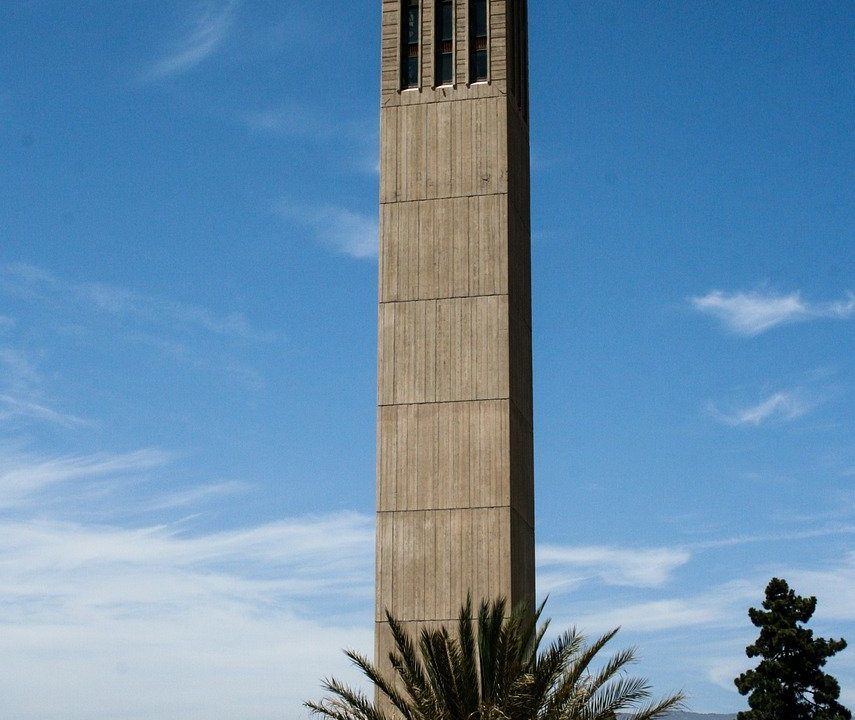
In this article, we are featuring our UC Santa Barbara essay that worked. This was an accepted essay from 2019.
Because UCSB’s admissions process is so competitive, we highly suggest having your essay edited by at least one professional admissions expert.
So, just how competitive can UCSB be?
How Hard is it to Get Into UC Santa Barbara?
Short answer: It’s hard.
Long answer: It’s hard and having good grades won’t guarantee your admission. Because the rest of the application pool will have very high grades, you will have to rely on the other most important factor: the personal insight questions.
To maximize your chances of getting accepted, you will need to make sure your entire application is in its best shape.
Like the other UC Schools, UC Santa Barbara uses 14 holistic admission factors in their decisions. The admissions process is grueling and competitive. Here are the stats for UCSB’s fall 2019 class.

Professional College Application Help.
Contact us. we'll get to you within 24 hours. .
UCSB average freshman profile
- High school GPA: 4.04-4.28
- Applied: 93,442
- Admitted: 27,719
- Admissions Rate: 29.7%
UC Santa Barbara’s admission rate has dropped from the years before; and as admissions gets more competitive each year, it will only drop more. That’s why it’s important to fine-tune every aspect of your application to maximize your acceptance chances.
Successful UC Santa Barbara Essay
“Refereeing in sports is a position that never wins. There is no room for error, and even when one is right, they are wrong to half the crowd. There is no level in the career, from little kids to the world cup, where the audience gets any nicer. Despite this, being an arbiter pays off. It’s a small career niche, so every referee is special and contributes greatly to the sport. They help keep the spirit of the game alive, and provide an opportunity for those who no longer play on the field to still take part in the sport. I was fourteen when I started refereeing soccer games, still playing recreationally myself I began as a linesman for 8-9-year-old children who did not quite know how to play. While my fellow referees and I were not quite allowed to coach, we offered guidance and explained to kids that, “No, no matter how many times you do it, you are still not allowed to raise your foot on a throw-in,” and “No, please don’t tug on the other player’s shirt!” Now, five years later, as the Fall 2019 season comes to a close, I have aged out of the youth recreational league. I do not have the time to practice for an adult team, as I focus my energies on school. But between August through November, every year, every Saturday, that playing spirit is awakened on the sidelines, and nothing is more rewarding than to take part in officiating soccer matches on a Saturday morning where the game runs smoothly, the players have a good time (winning or losing), and the parents can watch their kids with pride — even if they dislike the referee’s calls. I find joy in playing a part in contributing to the spirit of the game and that is my special role in the soccer community.” Anonymous; Accepted to UC Davis + UC Santa Barbara
How to Write the UCSB Essay

With an admission rate of 29.7%, UCSB is considered one of the “middle-tier” UC schools. Don’t mistake this as medium difficulty of acceptance, with the upper tiers being hard and the lower being easy. All UCs, at least currently, are very difficult to get into.
Compared to every other UC Santa Barbara essay that worked, this one is one of the “luckier” essays to have been accepted.
With the scores our applicant had received, she could have been accepted into much more competitive UC schools if she had a UC admissions officer look at her work.
With that said, here are 3 pieces of advice we would provide to write your UCSB personal insight questions.
1. Make a Strong Hook (A Very Strong One)
Hooks are some of the most important parts of the college essay. They not only catch attention, but they also tell the admissions officers that you take your application very seriously.
The hook needs to at least be better than the average applicant’s hook. Considering many of them are applying with high GPAs, you can be sure many of them won’t skimp out on their hooks as well.
Hooks also tend to be one of the most difficult parts to get right.
On one hand, you want to be short, sweet, to the point, and absolutely riveting. On the other hand, you easily risk saying something awkward or offensive in the process.
2. Write with strong imagery
Imagery is another one of those most important parts of the essay.
The only problem with this is that it tends to be very difficult to get right. There are so many considerations with imagery in the college essays that covering every point would be impossible.
So, how do we make imagery work with the essay? It depends on your topic.
Some topics may require many sentences in short bursts with no punctuation. Other topics may demand long sentences with deep description of every physical feeling.
For some, imagery can also demonstrate certain personality traits. For example, long and fluid “stream of consciousness” types of writing tend to fit for creative applicants because it demonstrates a dream-like vision.
The overall gist is this: your style of imagery should match your topic, and it should portray a certain personality trait.
Covering all of this will make you very attractive to admissions officers.
We understand that making good imagery is very difficult for a lot of applicants. That’s why we highly suggest having your admissions essay checked by an expert.
3. Connect Your Essay’s “Theme” With the Rest of the Application
This technique can be quite difficult to execute, but here’s how to do it in simple terms.
First, you need to determine what sort of persona you want to demonstrate through your application. Are you an empathetic person who is willing to go the extra mile for those you care about? Are you a headstrong person who can tackle all obstacles in front of them? Determine what sort of person you want to appear as to your admissions officers.
Second, try to string your overall theme to the words of all of your essays. Like the rest of the UC schools, UC Santa Barbara requires multiple personal insight questions. Try to implement the theme in each of those essays so that the admissions officers understand who you are as a whole.
Have questions about how you can get into UC Santa Barbara? Have any questions about our UC Santa Barbara essay that worked? Need professional editing and counselling? We’re here to help. Simply fill out our contact form in the link provided and we will get back to you as soon as possible.
Leave a Comment Cancel reply
College essay editing services from professionals, sign up for a free 30-minute phone consultation. we'll get back to you within 24 hours.
- Mailing List
Freshman Applicants
We're excited you are thinking about applying to UCSB as a freshman.
We are thrilled you are considering UC Santa Barbara as your home for the next few years. If you are a senior in high school or if you have recently graduated and have not enrolled in another college or university, you should apply for freshman admission. If you've completed college courses during high school - including during the summer after graduation - you're still considered a freshman applicant.
Admission Requirements
UCSB uses eligibility requirements and selection criteria to admit its next class of Gauchos each year. View our Eligibility and Selection page to understand the requirements you must meet to be eligible for admission and the selection criteria we use to select from amongst eligible applicants.
UC Application Playlist
Watch our step-by-step instructions on completing your UC Application. View the playlist here on on our YouTube channel . We even have the UC Application Tutorial available in Spanish .
Application Resources for Freshmen
You probably have questions about submitting your UC application and about campus life at UCSB. Our downloadable brochures can help.
Admission Guide Brochure
View our guide to UCSB admissions for freshman and transfer applicants.
UCSB Admission Guide Brochure PDF
UCSB Viewbook
Take a look at what UCSB offers undergraduates in this visual guide to campus.
UCSB Viewbook PDF
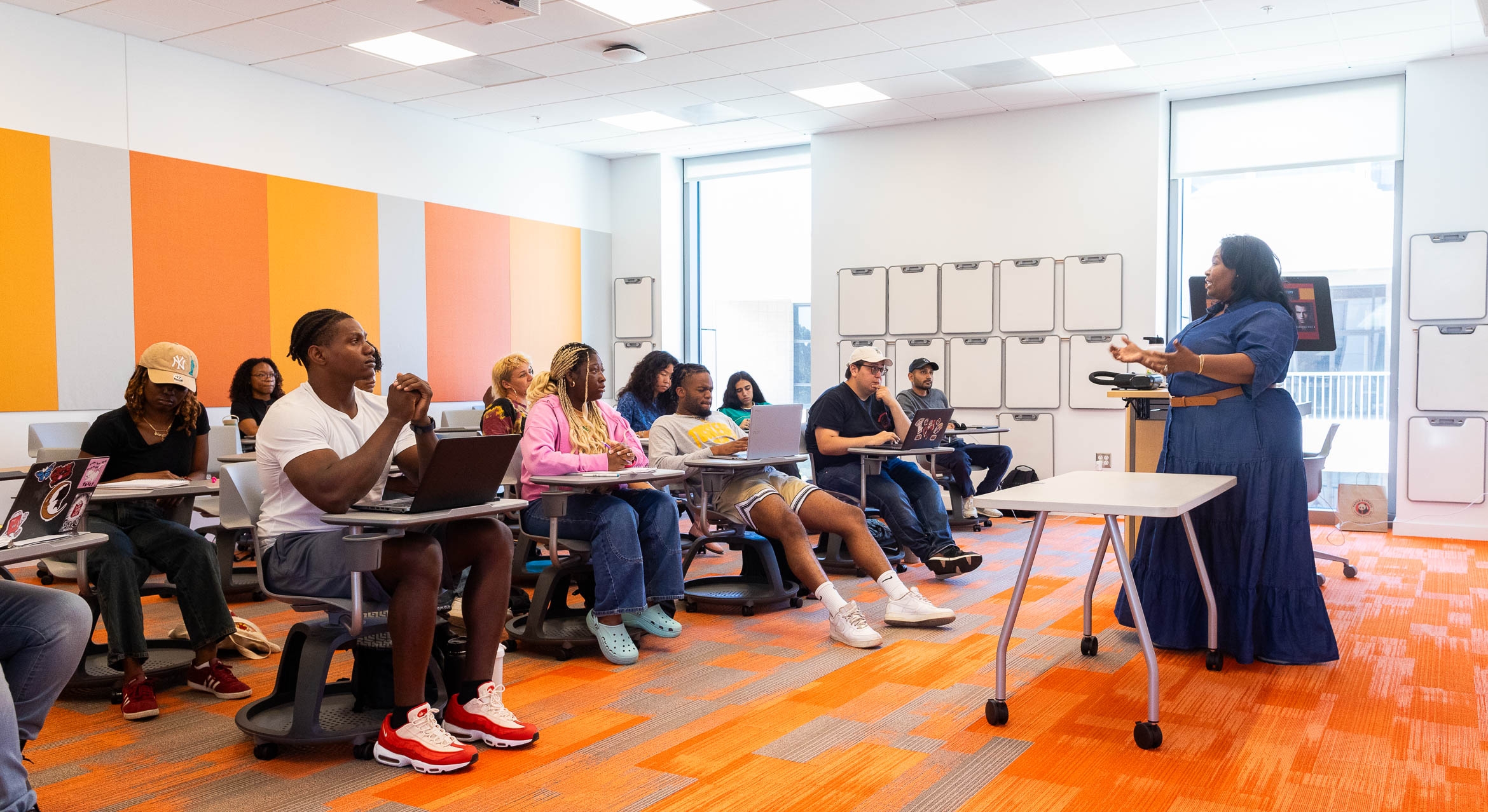
UC Santa Barbara and Tuskegee University launch pilot program to advance Black cultural perspectives in TV writing
If you’ve heard Octavia Spencer give an interview, you can probably tell she’s from the South. But someone who really understands her voice can tell she’s from Alabama. Reese Witherspoon on the other hand? Her voice reveals she’s from Tennessee. And a good dialogue writer knows, it’s not just the twang. It’s the culture.
A unique pilot program at UC Santa Barbara focuses on writing for diverse voices, creating a new kind of space between a Hispanic Serving Institution and an HBCU ( Historically Black Colleges and Universities ). Ten Booker T. Washington Scholars from Alabama’s Tuskegee University — an HBCU — will spend the summer at UCSB — an HSI — taking classes in screenwriting.
“We find ourselves at a pivotal juncture in our human history, where the call for fresh and diverse perspectives to be acknowledged is paramount,” said UCSB Michael Douglas Dean of Humanities and Fine Arts and Professor Daina Ramey Berry. “It is time when compelling narratives must emerge and take center stage.”
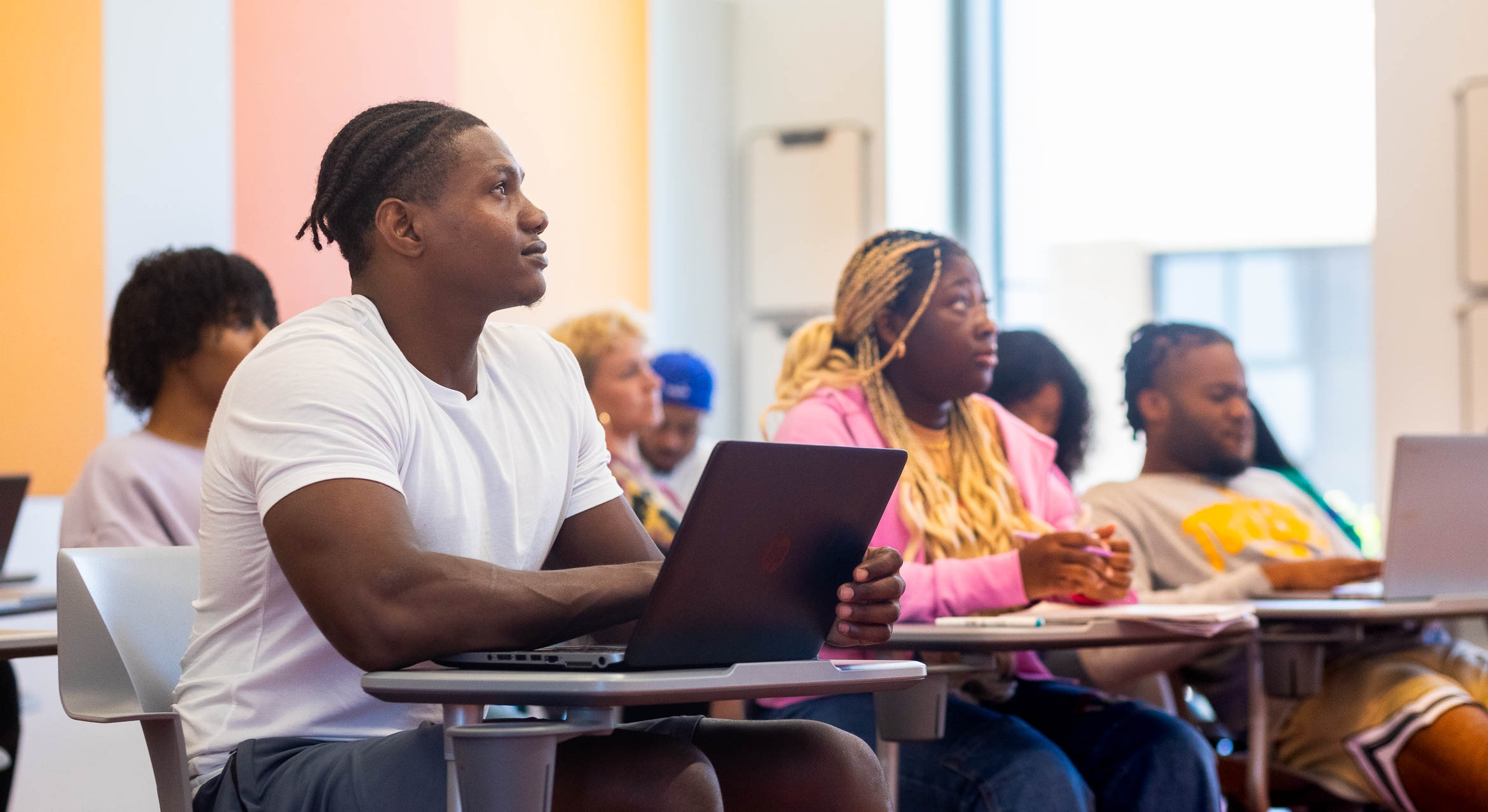
The Tuskegee Scholars Program brings together 10 Black students from Tuskegee and 15 students from UCSB for six weeks to take classes in TV writing and introduction to cinema, along with field trips to studios in Los Angeles for hands-on experience. The program seeks to prepare students for careers in the film industry by providing exposure and research opportunities, especially for students who may not have had access to such experiences and those who seek to present different cultural perspectives in storytelling.
The program also aims to plant the seeds for an entertainment industry in Tuskegee by growing the local talent with guidance from top-level educators and industry professionals.
While UCSB’s Department of Film and Media Studies was launched in 1973, for Tuskegee the summer scholars program is a beginning, as the college seeks to develop its own film and media studies program. UCSB’s Tuskegee scholars are all working towards a concentration in film and media arts.
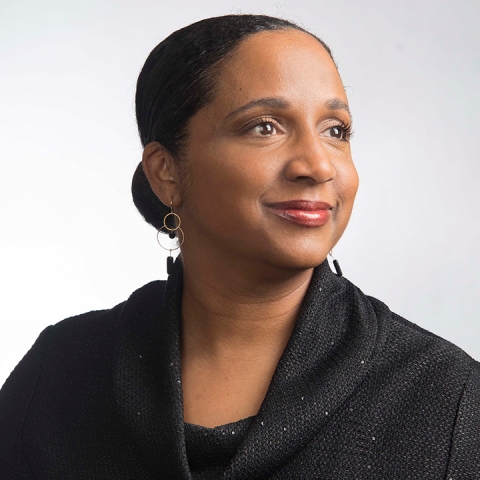
Daina Ramey Berry
Daina Ramey Berry is an internationally recognized scholar of the enslaved and a specialist on gender and slavery and Black women’s history in the United States. Berry is the award-winning author and editor of six books and numerous scholarly articles.
“In many ways, the program echoes the historic mission of Tuskegee University, which was founded to provide both academic and industrial education,” said Berry, who partnered with film and television executive Adriane Hopper Williams to launch the program. Williams was born on the Tuskegee Institute campus at Alabama’s first hospital to serve people of color, John A. Andrew Memorial Hospital, where her father was the director and later the vice president of health affairs. Today, Williams and her husband Derrick own a production services company called DNA Media Group, and laid the groundwork for what is now, The Legacy Lives: Tuskegee, a non-profit organization committed to revitalizing Tuskegee’s university and town.
“We are excited about our academic partnership that allows our students to be exposed to the film and entertainment industry,” said Tuskegee University Provost S. Keith Hargrove. “UCSB has been phenomenal in its outreach and collaboration with Tuskegee University to invite and engage our students, receive academic credit and create a unique experience for both institutions through a summer program initiated by Ms. Adriane Hopper Williams. We intend to further expand our partnership with a faculty exchange and support the potential development of a film degree at Tuskegee University.”
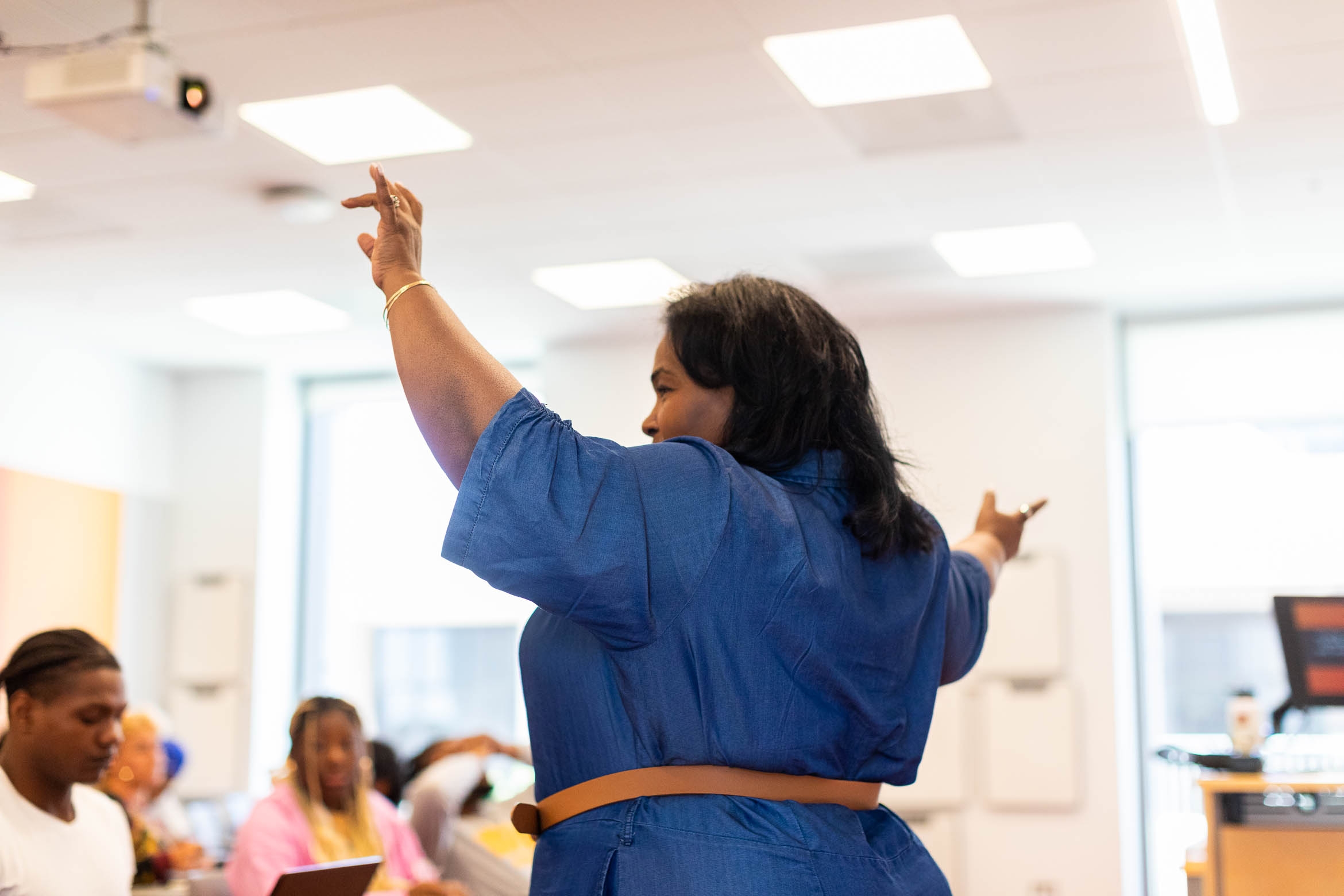
“Our objective for our partnership with UCSB specifically is to create a diverse learning environment where Tuskegee students and UCSB can learn from each other and both programs can benefit from what the other has to offer,” said Williams. “Studies have confirmed that working with similar people makes us intellectually lazy so we want to expand the perspectives and points of view of all students involved in order to enrich their creative output. I am tired of hearing that there are not enough qualified Black people to hire for industry professions and we believe that this program will help to change this narrative.”
Hallmark Mahogany’s “Napa Ever After” writer Wendy Eley Jackson , a UCSB lecturer, will teach the cohort’s flagship course in writing for television, including sections on the discovery and cultivation of story concepts, the language of film and the structuring of scripts. “Everyone writes from the lens of their experience or where they allow their imagination,” said Eley Jackson, who was born in Alabama. “Students really want to learn how to ‘write to voice’ more than ever before.”
While the scholars are on campus, Eley Jackson said, the hope is that they have a sense of belonging while in a program that is comfortable, collaborative and safe. Her Alabama background is no coincidence. Dean Berry enlisted her — at least in part — because of it.
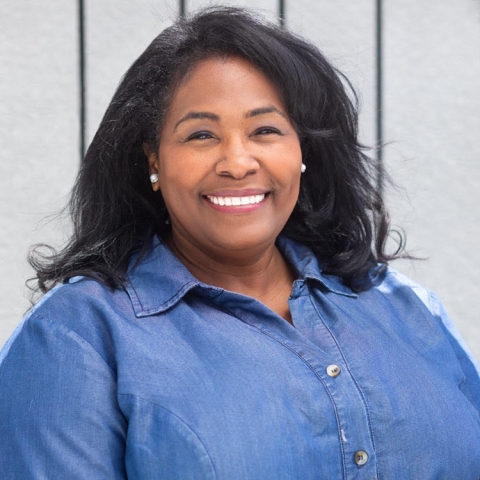
Wendy Eley Jackson
Wendy Eley Jackson teaches basic & advanced screenwriting for television, contemporary screenwriters, creative writing and film as literature.
“My mom and all her sisters graduated from Tuskegee,” Eley Jackson said. “My father was one of the original Red Tails of Tuskegee Airmen. I myself was born in Dothan, Alabama, right south of Tuskegee, and I took my first steps, at nine months old, on the tarmac of Moton Field in Tuskegee. I spent every summer on that campus from the time I was nine months to 15. I can recognize the tree where my family members’ pledged a sorority. I know the voice.”
By learning how to research and write to voice, students elevate the potential for complex portraits of Black families and communities in mainstream media and streaming.
“Narrative possesses the remarkable capacity to construct connections rooted in understanding, tolerance, empathy and respect, guiding us in comprehending the intricacies of our lives and the ever-evolving world surrounding us,” Berry added. “The time has now arrived for us to harness the boundless potential of storytelling, as manifested through the realms of entertainment and the performing arts, to ignite social transformation.”
Big picture is for Tuskegee to start with a concentration program in film and media arts and to grow it over the next two years to a full degree program. Starting in the summer program at UCSB, students will immerse themselves in the art of cinema, television and media production as they learn the arts of writing, development, cinematography, sound and editing. Through DNA Media Group and The Legacy Lives: Tuskegee summer program, students have been invited to interact with Ayo Davis, president of branded television at Disney Studios. They will also have conversations with Jamila Hunter, president of MACRO Television (“Mudbound;” “Fences;” “They Cloned Tyrone” and “Judas and the Black Messiah”). Finally, they will also meet industry professionals from Sony Studios. Come fall, Tuskegee will offer classes in development and pre-production of film and television and introduction to film, allowing students to continue to pursue their professional dreams.
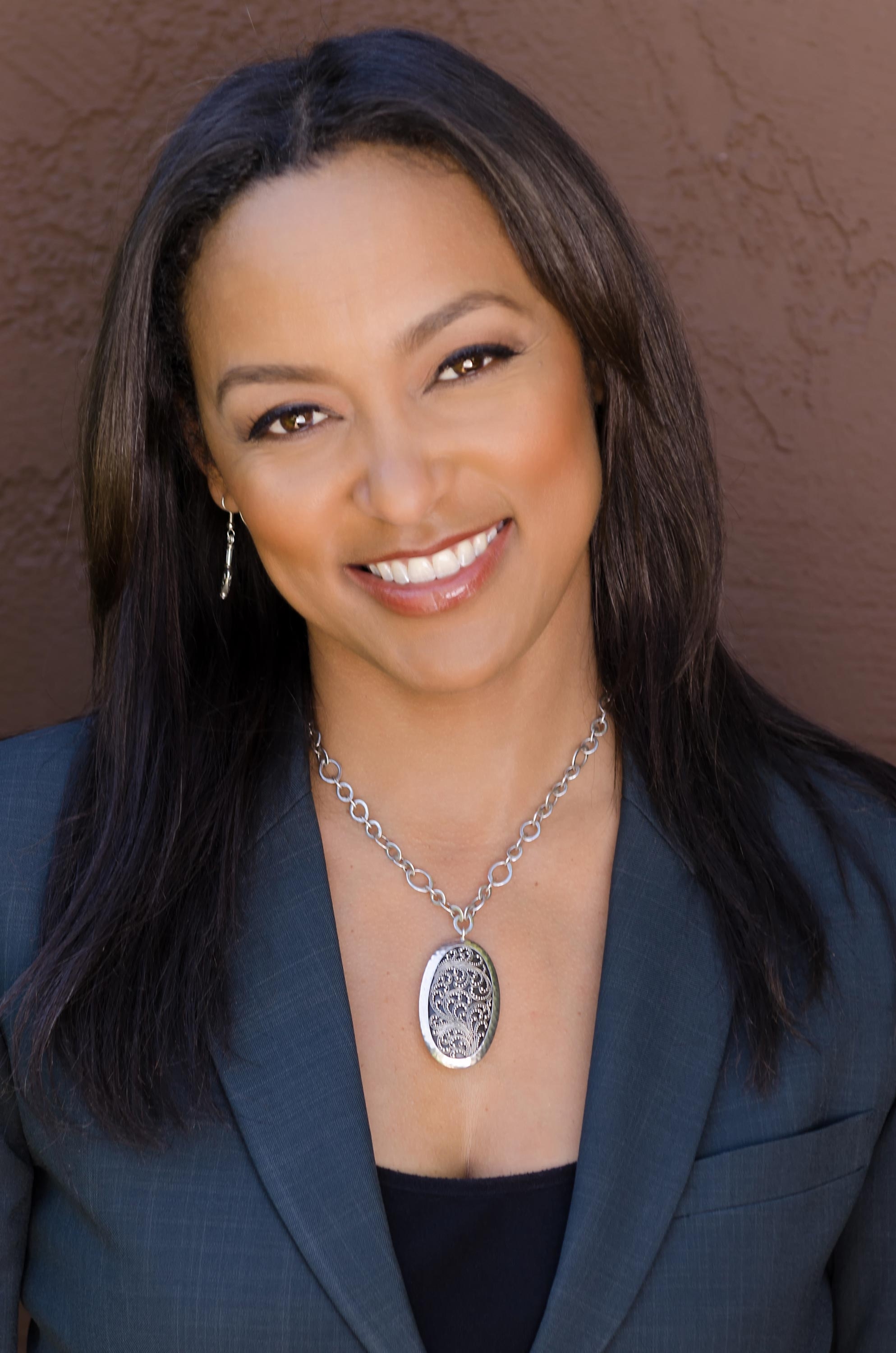
Adriane Hopper Williams
Williams is an Emmy and Gracie award-winning executive producer and president of EnLight Productions, Inc. Her focus is on telling stories of transformation.
“The highly regarded film and television program at UCSB offers Tuskegee students an opportunity to pursue and develop their interests in film and television, screenwriting, production, etc.” said Wayne A. Barr, director of choral activities and interim chair of Tuskegee’s Department of Fine and Performing Arts. “We hope for the enthusiasm and positive experiences of this first cohort of Booker T. Washington Scholars to ultimately lead to the development of a film and media arts program at Tuskegee University in the near future.”
Tuskegee alums, including Grammy winners Lionel Richie, The Commodores and Tom Joyner, American writer Ralph Ellison and entertainer Keenan Ivory Wayans, have used their talents to create inclusion both in front and behind the scenes in American industry.
Williams, who first initiated talks for the program, was inspired to act after visiting Tuskegee in 2021, when she “discovered that this university town — once a vibrant hub of Black educators, physicians, entrepreneurs — was now in severe decay.”
“I was inspired to do something about it, immediately,” she said. Her mother, Barbara Hopper, owned a Tuskegee real estate company, New Horizons Realty, and developed properties throughout the town between 1971 and 1981. “One of the first things I remember my mother doing was starting a school out of the old Varner slave plantation and calling it Tuskegee Laboratory and Learning Center. She saw a need and she filled it with top level instructors. That is where my brothers and I went to elementary school.”
Years later, the family would move to California when her father, Dr. Cornelius L. Hopper, was hired as the vice president of health affairs for the University of California systemwide.
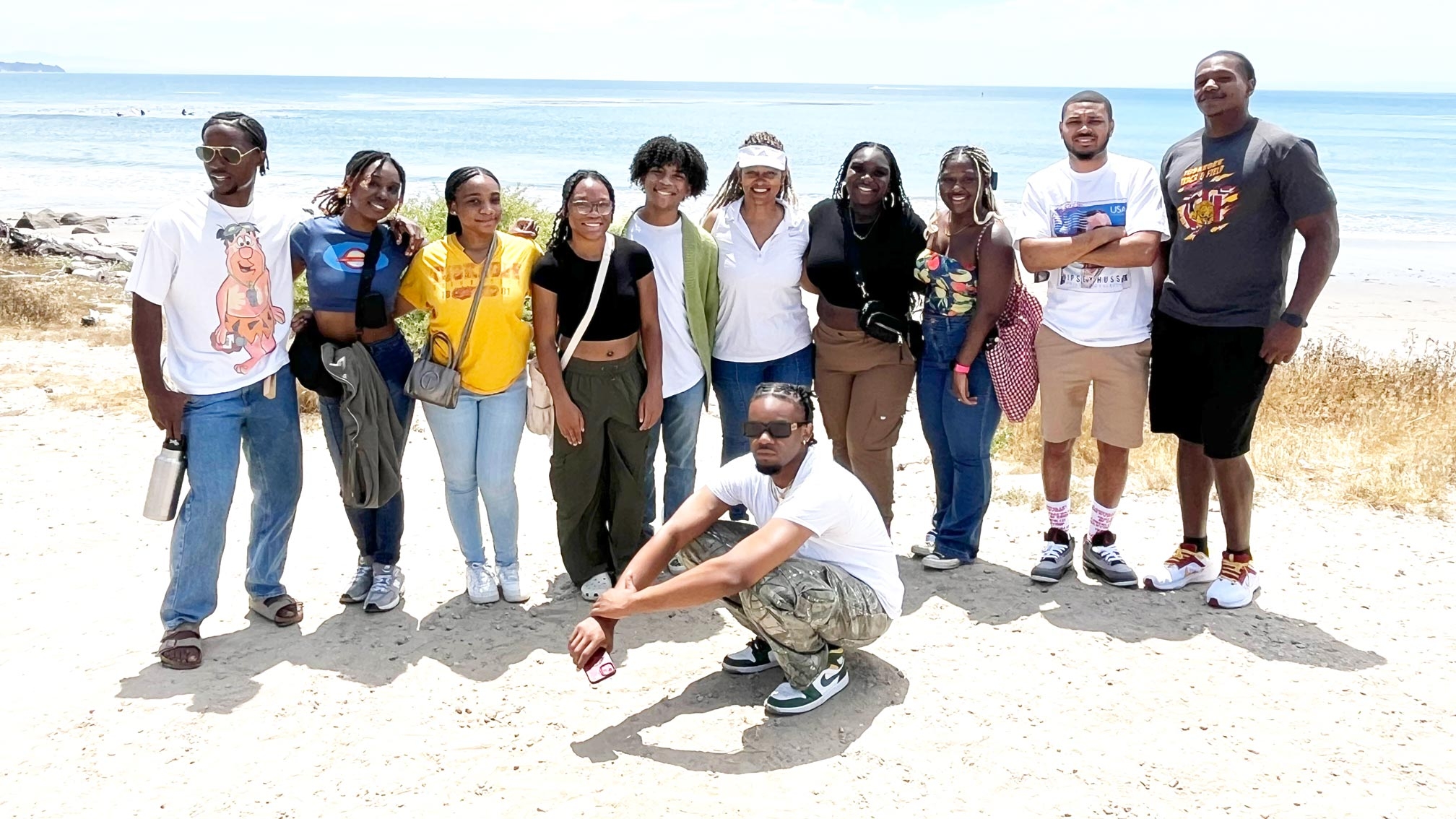
“So if you want to know my history with Tuskegee University, UC schools and understand my desire to launch an educational program, it started with my parents’ life-long commitment to higher learning, and our deep love for Tuskegee,” she said.
Williams and her husband have a combined 30 years of experience in the entertainment industry, including an Emmy and four Emmy nominations. In addition to Greene from MACRO, industry executives that have advised the program launch include Stephen Galloway, Chapman University’s dean of film and media arts.
“It is so incredibly exciting to see this partnership with Tuskegee University develop,” said Tim Sherwood, interim dean of UCSB’s College of Creative Studies (CCS). “Dean Daina Ramey Berry is a visionary leader and the opportunity to work with her and CCS faculty Wendy Eley Jackson in seeing this program become a reality has been a true pleasure!”
Debra Herrick Associate Editorial Director (805) 893-2191 [email protected]
Share this article
About UC Santa Barbara
The University of California, Santa Barbara is a leading research institution that also provides a comprehensive liberal arts learning experience. Our academic community of faculty, students, and staff is characterized by a culture of interdisciplinary collaboration that is responsive to the needs of our multicultural and global society. All of this takes place within a living and learning environment like no other, as we draw inspiration from the beauty and resources of our extraordinary location at the edge of the Pacific Ocean.
Related Stories
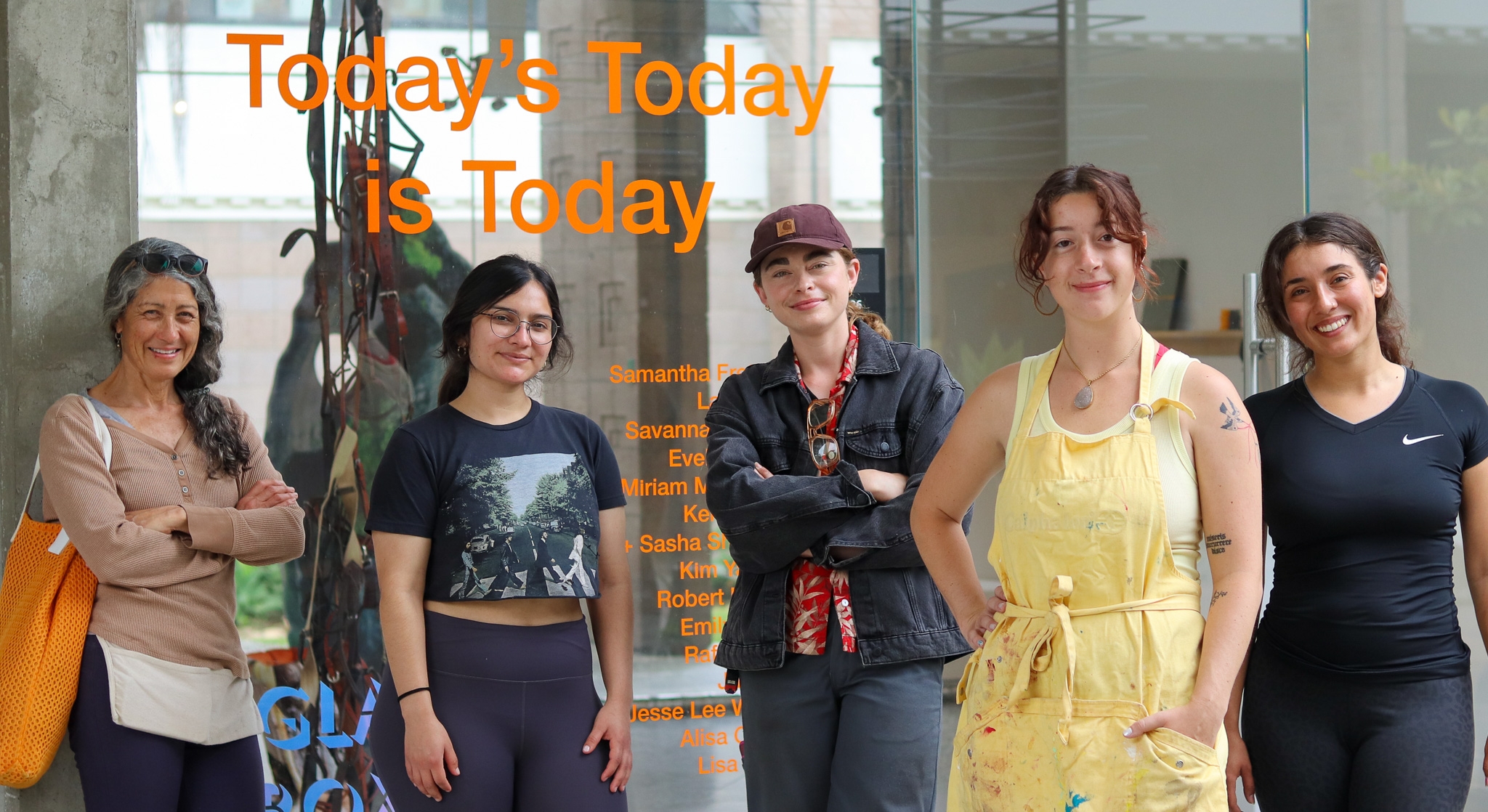
July 10, 2024
‘Today’s Today Is Today’ exhibition showcases multi-generational artistic connections at UCSB
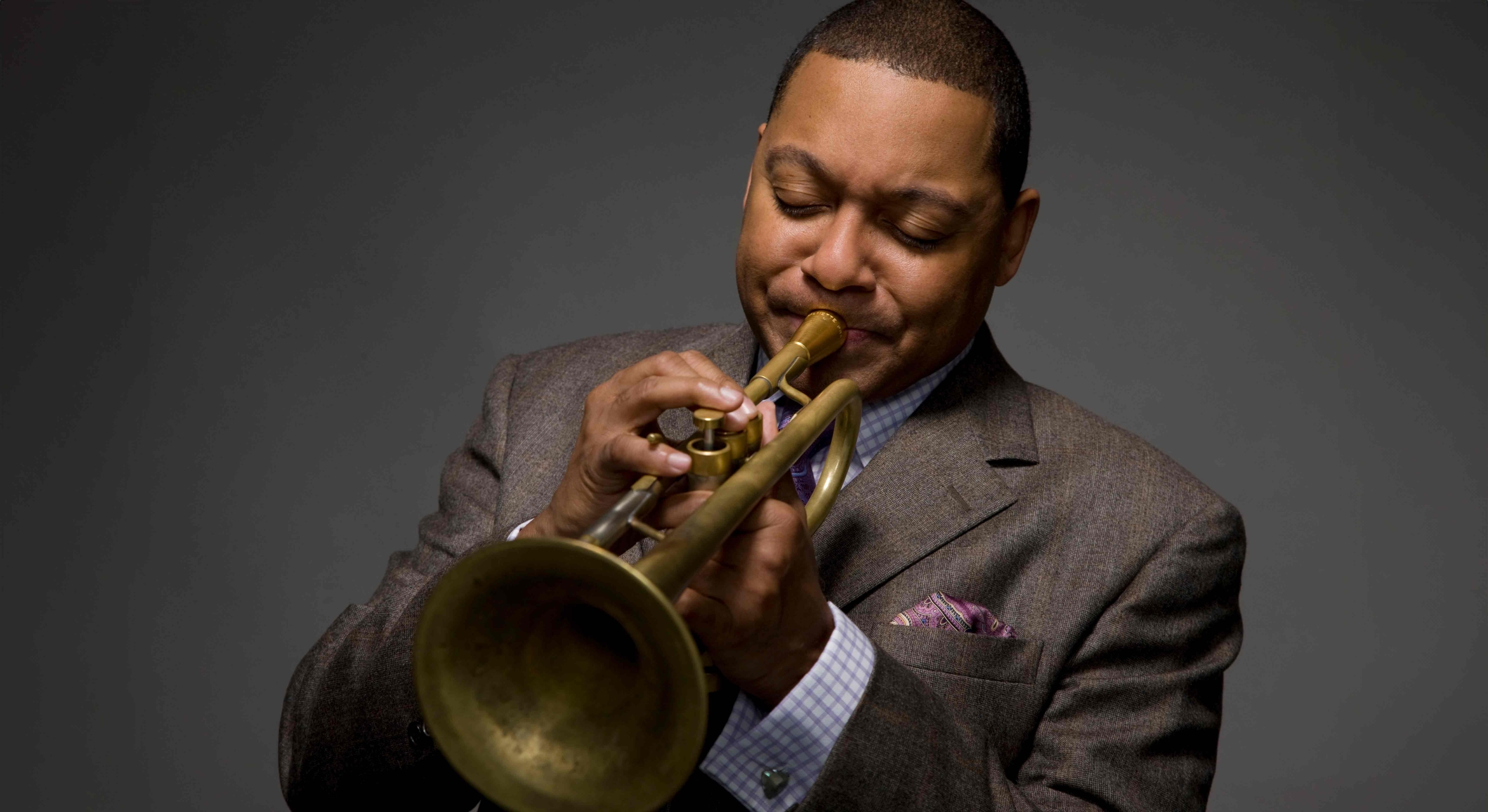
June 11, 2024
UCSB Arts & Lectures announces 65th anniversary season
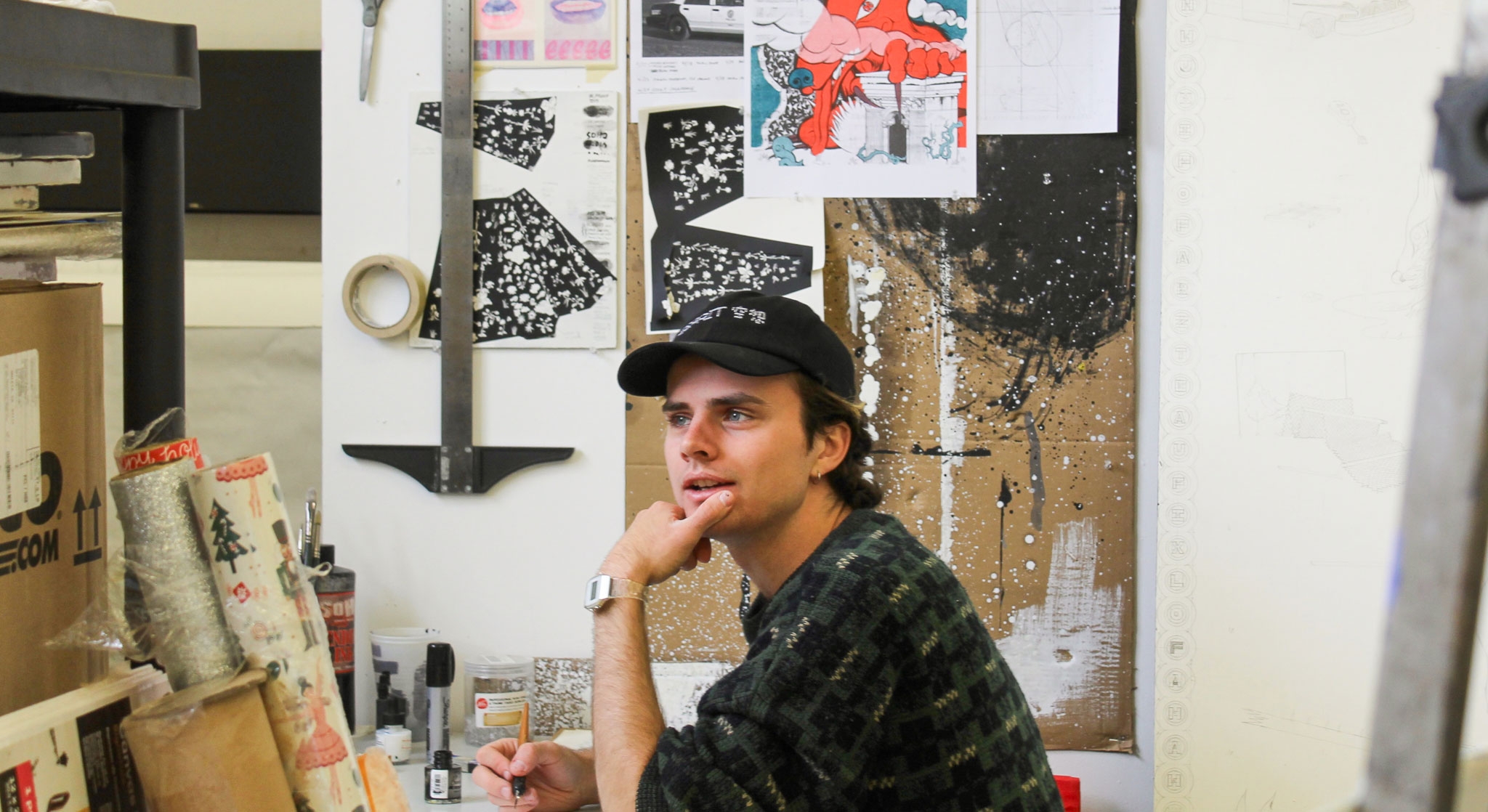
June 5, 2024
Cartoonist and illustrator presents senior art show, plans new comic book project
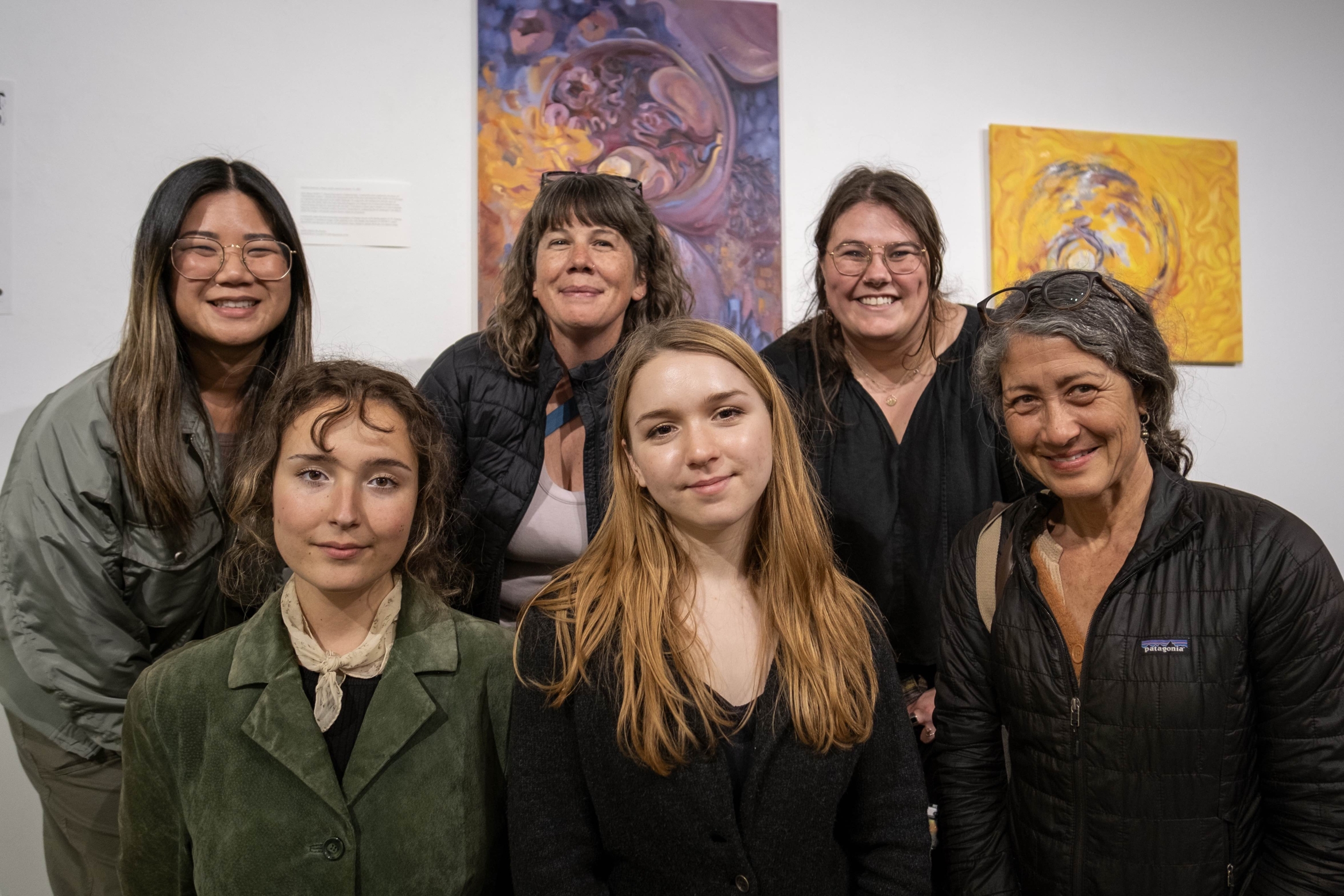
May 16, 2024
‘Originalia’ art show celebrates the human reproductive system
You are using an outdated browser. Please upgrade your browser or activate Google Chrome Frame to improve your experience.

UCSB Requirements for Admission
Choose your test.
What are UCSB's admission requirements? While there are a lot of pieces that go into a college application, you should focus on only a few critical things:
- GPA requirements
- Testing requirements, including SAT and ACT requirements
- Application requirements
In this guide we'll cover what you need to get into UCSB and build a strong application.
School location: Santa Barbara, CA
This school is also known as: UCSB, UC Santa Barbara, University of California, Santa Barbara
Admissions Rate: 29.1%
If you want to get in, the first thing to look at is the acceptance rate. This tells you how competitive the school is and how serious their requirements are.
The acceptance rate at UCSB is 29.1% . For every 100 applicants, 29 are admitted.

This means the school is very selective . If you meet UCSB's requirements for GPA, SAT/ACT scores, and other components of the application, you have a great shot at getting in. But if you fall short on GPA or your SAT/ACT scores, you'll have a very low chance of being admitted, even if you meet the other admissions requirements.

We can help. PrepScholar Admissions is the world's best admissions consulting service. We combine world-class admissions counselors with our data-driven, proprietary admissions strategies . We've overseen thousands of students get into their top choice schools , from state colleges to the Ivy League.
We know what kinds of students colleges want to admit. We want to get you admitted to your dream schools.
Learn more about PrepScholar Admissions to maximize your chance of getting in.

UCSB GPA Requirements
Many schools specify a minimum GPA requirement, but this is often just the bare minimum to submit an application without immediately getting rejected.
The GPA requirement that really matters is the GPA you need for a real chance of getting in. For this, we look at the school's average GPA for its current students.
Average GPA: 4.12
The average GPA at UCSB is 4.12 .

(Most schools use a weighted GPA out of 4.0, though some report an unweighted GPA.
With a GPA of 4.12, UCSB requires you to be at the top of your class . You'll need nearly straight A's in all your classes to compete with other applicants. Furthermore, you should be taking hard classes - AP or IB courses - to show that college-level academics is a breeze.
If you're currently a junior or senior, your GPA is hard to change in time for college applications. If your GPA is at or below the school average of 4.12, you'll need a higher SAT or ACT score to compensate . This will help you compete effectively against other applicants who have higher GPAs than you.
SAT and ACT Requirements
Each school has different requirements for standardized testing. Only a few schools require the SAT or ACT, but many consider your scores if you choose to submit them.
UCSB hasn't explicitly named a policy on SAT/ACT requirements, but because it's published average SAT or ACT scores (we'll cover this next), it's likely test flexible. Typically, these schools say, "if you feel your SAT or ACT score represents you well as a student, submit them. Otherwise, don't."
Despite this policy, the truth is that most students still take the SAT or ACT, and most applicants to UCSB will submit their scores. If you don't submit scores, you'll have one fewer dimension to show that you're worthy of being admitted, compared to other students. We therefore recommend that you consider taking the SAT or ACT, and doing well.
UCSB SAT Requirements
Many schools say they have no SAT score cutoff, but the truth is that there is a hidden SAT requirement. This is based on the school's average score.
Average SAT: 1355
The average SAT score composite at UCSB is a 1355 on the 1600 SAT scale.
This score makes UCSB Moderately Competitive for SAT test scores.

UCSB SAT Score Analysis (New 1600 SAT)
The 25th percentile SAT score is 1230, and the 75th percentile SAT score is 1480. In other words, a 1230 on the SAT places you below average, while a 1480 will move you up to above average .
Here's the breakdown of SAT scores by section:
| 610 | 770 | ||
| 620 | 710 | ||
| 1230 | 1480 |
SAT Score Choice Policy
The Score Choice policy at your school is an important part of your testing strategy.
UCSB has the Score Choice policy of "All Scores."
This means that UCSB requires you to send all SAT scores you've ever taken to their office.
This sounds daunting, but most schools don't actually consider all your scores equally. For example, if you scored an 1300 on one test and a 1500 on another, they won't actually average the two tests.
More commonly, the school will take your highest score on a single test date. Even better, some schools form a Superscore - that is, they take your highest section score across all your test dates and combine them.
Some students are still worried about submitting too many test scores. They're afraid that UCSB will look down on too many attempts to raise your score. But how many is too many?
From our research and talking to admissions officers, we've learned that 4-6 tests is a safe number to submit . The college understands that you want to have the best chance of admission, and retaking the test is a good way to do this. Within a reasonable number of tests, they honestly don't care how many times you've taken it. They'll just focus on your score.
If you take it more than 6 times, colleges start wondering why you're not improving with each test. They'll question your study skills and ability to improve.
But below 6 tests, we strongly encourage retaking the test to maximize your chances. If your SAT score is currently below a 1480, we strongly recommend that you consider prepping for the SAT and retaking it . You don't have much to lose, and you can potentially raise your score and significantly boost your chances of getting in.

Download our free guide on the top 5 strategies you must be using to improve your score. This guide was written by Harvard graduates and SAT perfect scorers. If you apply the strategies in this guide, you'll study smarter and make huge score improvements.

UCSB ACT Requirements
Just like for the SAT, UCSB likely doesn't have a hard ACT cutoff, but if you score too low, your application will get tossed in the trash.
Average ACT: 29
The average ACT score at UCSB is 29. This score makes UCSB Moderately Competitive for ACT scores.
The 25th percentile ACT score is 26, and the 75th percentile ACT score is 32.
Even though UCSB likely says they have no minimum ACT requirement, if you apply with a 26 or below, you'll have a very hard time getting in, unless you have something else very impressive in your application. There are so many applicants scoring 29 and above that a 26 will look academically weak.
ACT Score Sending Policy
If you're taking the ACT as opposed to the SAT, you have a huge advantage in how you send scores, and this dramatically affects your testing strategy.
Here it is: when you send ACT scores to colleges, you have absolute control over which tests you send. You could take 10 tests, and only send your highest one. This is unlike the SAT, where many schools require you to send all your tests ever taken.
This means that you have more chances than you think to improve your ACT score. To try to aim for the school's ACT requirement of 32 and above, you should try to take the ACT as many times as you can. When you have the final score that you're happy with, you can then send only that score to all your schools.
ACT Superscore Policy
By and large, most colleges do not superscore the ACT. (Superscore means that the school takes your best section scores from all the test dates you submit, and then combines them into the best possible composite score). Thus, most schools will just take your highest ACT score from a single sitting.
We weren't able to find the school's exact ACT policy, which most likely means that it does not Superscore. Regardless, you can choose your single best ACT score to send in to UCSB, so you should prep until you reach our recommended target ACT score of 32.

Download our free guide on the top 5 strategies you must be using to improve your score. This guide was written by Harvard graduates and ACT perfect scorers. If you apply the strategies in this guide, you'll study smarter and make huge score improvements.

SAT/ACT Writing Section Requirements
Currently, only the ACT has an optional essay section that all students can take. The SAT used to also have an optional Essay section, but since June 2021, this has been discontinued unless you are taking the test as part of school-day testing in a few states. Because of this, no school requires the SAT Essay or ACT Writing section, but some schools do recommend certain students submit their results if they have them.
UCSB considers the SAT Essay/ACT Writing section optional and may not include it as part of their admissions consideration. You don't need to worry too much about Writing for this school, but other schools you're applying to may require it.
Final Admissions Verdict
Because this school is very selective, strong academic scores are critical to improving your chances of admission . If you're able to score a 1480 SAT or a 32 ACT or above, you'll have a very strong chance at getting in.
For a school as selective as UCSB, rounding out the rest of your application will also help. We'll cover those details next.
But if you apply with a score below a 1480 SAT or a 32 ACT, you unfortunately have a low chance of getting in. There are just too many other applicants with high SAT/ACT scores and strong applications, and you need to compete against them.
Admissions Calculator
Here's our custom admissions calculator. Plug in your numbers to see what your chances of getting in are. Pick your test: SAT ACT
- 80-100%: Safety school: Strong chance of getting in
- 50-80%: More likely than not getting in
- 20-50%: Lower but still good chance of getting in
- 5-20%: Reach school: Unlikely to get in, but still have a shot
- 0-5%: Hard reach school: Very difficult to get in
How would your chances improve with a better score?
Take your current SAT score and add 160 points (or take your ACT score and add 4 points) to the calculator above. See how much your chances improve?
At PrepScholar, we've created the leading online SAT/ACT prep program . We guarantee an improvement of 160 SAT points or 4 ACT points on your score, or your money back.
Here's a summary of why we're so much more effective than other prep programs:
- PrepScholar customizes your prep to your strengths and weaknesses . You don't waste time working on areas you already know, so you get more results in less time.
- We guide you through your program step-by-step so that you're never confused about what you should be studying. Focus all your time learning, not worrying about what to learn.
- Our team is made of national SAT/ACT experts . PrepScholar's founders are Harvard graduates and SAT perfect scorers . You'll be studying using the strategies that actually worked for them.
- We've gotten tremendous results with thousands of students across the country. Read about our score results and reviews from our happy customers .
There's a lot more to PrepScholar that makes it the best SAT/ACT prep program. Click to learn more about our program , or sign up for our 5-day free trial to check out PrepScholar for yourself:

Application Requirements
Every school requires an application with the bare essentials - high school transcript and GPA, application form, and other core information. Many schools, as explained above, also require SAT and ACT scores, as well as letters of recommendation, application essays, and interviews. We'll cover the exact requirements of UCSB here.
Application Requirements Overview
- Common Application Not accepted
- Electronic Application Available
- Essay or Personal Statement Required for all freshmen
- Letters of Recommendation
- Interview Not required
- Application Fee $70
- Fee Waiver Available? Available
- Other Notes
Testing Requirements
- SAT or ACT Not used if submitted
- SAT Essay or ACT Writing Optional
- SAT Subject Tests Optional
- Scores Due in Office None
Coursework Requirements
- Subject Required Years
- Foreign Language 2
- Social Studies
- Electives 1
Deadlines and Early Admissions
- Offered? Deadline Notification
- Yes November 30 March 31

Admissions Office Information
- Address: 1210 Santa Barbara, CA 93106-2014
- Phone: (805) 893-8000
- Email: [email protected]
Other Schools For You
If you're interested in UCSB, you'll probably be interested in these schools as well. We've divided them into 3 categories depending on how hard they are to get into, relative to UCSB.

Reach Schools: Harder to Get Into
These schools are have higher average SAT scores than UCSB. If you improve your SAT score, you'll be competitive for these schools.
| School Name | Location | SAT Avg | ACT Avg |
|---|---|---|---|
| Los Angeles, CA | 1440 | 32 | |
| Ann Arbor, MI | 1435 | 33 | |
| Boston, MA | 1418 | 32 | |
| Berkeley, CA | 1415 | 31 | |
| Los Angeles, CA | 1405 | 31 | |
| Stony Brook, NY | 1396 | 31 | |
| Villanova, PA | 1395 | 33 |

Same Level: Equally Hard to Get Into
If you're competitive for UCSB, these schools will offer you a similar chance of admission.
| School Name | Location | SAT Avg | ACT Avg |
|---|---|---|---|
| Binghamton, NY | 1375 | 31 | |
| Bethlehem, PA | 1365 | 31 | |
| Amherst, MA | 1358 | 30 | |
| Austin, TX | 1355 | 30 | |
| Rochester, NY | 1352 | 31 | |
| Seattle, WA | 1340 | 30 | |
| San Luis Obispo, CA | 1335 | 29 |

Safety Schools: Easier to Get Into
If you're currently competitive for UCSB, you should have no problem getting into these schools. If UCSB is currently out of your reach, you might already be competitive for these schools.
| School Name | Location | SAT Avg | ACT Avg |
|---|---|---|---|
| Storrs, CT | 1315 | 29 | |
| South Orange, NJ | 1310 | 30 | |
| Syracuse, NY | 1310 | 29 | |
| Richardson, TX | 1291 | 28 | |
| University Park, PA | 1265 | 28 | |
| Philadelphia, PA | 1241 | 28 | |
| Cincinnati, OH | 1223 | 26 |
Data on this page is sourced from Peterson's Databases © 2023 (Peterson's LLC. All rights reserved.) as well as additional publicly available sources.
If You Liked Our Advice...
Our experts have written hundreds of useful articles on improving your SAT score and getting into college. You'll definitely find something useful here.
Subscribe to our newsletter to get FREE strategies and guides sent to your email. Learn how to ace the SAT with exclusive tips and insights that we share with our private newsletter subscribers.
You should definitely follow us on social media . You'll get updates on our latest articles right on your feed. Follow us on all of our social networks:
For important information and updates on UCEAP programming, please visit the UCEAP Important Alerts webpage .

Education Abroad Program - UC Santa Barbara

Scholarships
| Help finance your time abroad! See below for a list of scholarship opportunities and application tips. | |
|
| |
| Click for a list of study abroad scholarships and essay tips. | |
Eligibility Requirements
Must be a UCSB student participating in a UCEAP fall, winter, spring, or year-long program
Must be eligible to receive financial aid (grants, scholarships, or loans) and have filed a FAFSA for most Gaucho Scholarships
Average Award Amount
$2,000 - $2,500
Application Deadlines
Fall/Northern Hemisphere Year 2024-25 Programs: March 1, 2024 by 11:59pm PT
Winter/Spring/Southern Hemisphere Year 2025 Programs: May 31, 2024 by 11:59pm PT
Application & Details
When you submit a UCSB EAP Gaucho Scholarship application, you're automatically considered for named scholarships available for specific program types (e.g. year-long, immersion), locations (e.g. Africa, Asia, France, Germany, Italy, Latin America, the Middle East, UK-England) and students (e.g. first generation college students, students taking classes in a foreign language).
The UCSB EAP Gaucho Scholarship application consists of:
- Scholarship Questionnaire - Save file as a PDF, rename it "Full Name, Scholarship Questionnaire" and upload it to your scholarship application.
- Most recent unofficial UC transcript with your legal name - Save file as a PDF, rename it "Full Name, Transcript" and upload it to your scholarship application.
- UCSB EAP Gaucho Scholarship Application
Featured Gaucho Scholarships
The Duncan Family Education Abroad Scholarship (France)
The George H. Griffiths and Olive J. Griffiths Charitable Foundation EAP Scholarship (Asia)
The Gupta Family StartWise Scholarship (Africa, India, Latin America)
Affiliated with RCSGD - There is a preference for an LGBTQIA+ student
Participate in a 2024-25 Year-long UCEAP program
Eligible to receive financial aid
Award Amount
Application Deadline
- March 1, 2024
The application consists of:
- Most recent unofficial UC transcript with your legal name - Save file as a PDF, rename it "Full Name, Transcript" and upload it to your scholarship application.
- Complete the Todd Piccus Study Abroad Scholarship Application
By applying to this scholarship, you will be automatically considered for the UCSB EAP Gaucho Scholarship. Therefore, you will not need to submit an additional materials for the Gaucho Scholarship.
Must be a UCSB student pursuing an internship for academic credit in one of the eligible UCEAP programs in China, Japan, Korea, Singapore, Taiwan or Thailand
Must meet the UCEAP program's minimum eligibility requirements
$3,000 - $6,000
Summer/Fall/Year 2023-24 Programs: February 9, 2024 by 11:59pm PT ( Summer/Fall/Year Deadline extended until March 1, 2024 by 11:59pm PT)
Spring 2024 Programs: May 13, 2024 by 11:59pm PT (Spring 2025 application deadline extended to June 14, 2024 by 11:59 PT)
See here for more detailed information.
The UCSB EAP Freeman Internship Scholarship application consists of:
- UCSB EAP Freeman Internship Scholarship Statement of Purpose - Save file as a PDF, rename it "Full Name_SOP" and upload it to your scholarship application.
Most recent unofficial transcript with your legal name - Save file as a PDF, rename it "Full Name_Transcript" and upload it to your scholarship application.
Résumé - Save file as a PDF, rename it "Full Name_Resume" and upload it to your scholarship application.
Letter of Recommendation - The letter must be on official letterhead and from a college professor, college instructor, TA, recent employer, or internship supervisor. The letter should address your qualifications for this scholarship. Save file as a PDF, rename it "Full Name_LOR" and upload it to your scholarship application.
*If your recommender prefers, they may email their letter directly to [email protected] .
UCSB EAP Freeman Internship Scholarship Application
Must be a U.S. citizen
Must be a Pell Grant recipient
$1,000-$5,000 or up to $8,000 if studying a critical need language
Summer 2024/Fall 2024/Year 2024-2025/Winter 2025/Spring 2025 Programs: March 7, 2024 by 11:59pm PT
Access the application here .
Must be a dependent (child or spouse) of an active duty military member
Must be a recipient of any type of Title IV federal financial aid
- Summer 2024/Fall 2024/Year 2024-25 Programs: January 4, 2024 by 11:59pm PT
- Configure block
Looking for someone?
Search for Faculty & Staff
Search our website index:
Find your way around campus:
Interactive Campus Map
Welcome to UC Santa Barbara –
where the land meets the sea, where brilliant minds meet each other, and where academic excellence and social engagement unite to spark creativity and discovery.
Public University
Forbes Magazine, which showcased 500 of the finest U.S. institutions of higher education in its 2023 America’s Top Colleges list, ranked UC Santa Barbara as the No. 5 public university in the country.
Platinum Bike-Friendly University
UC Santa Barbara students choose bicycles more than any other means of transportation, with 55% of undergraduates riding to campus on any given day. Among the overall campus population, an approximate 46% ride their bikes.
Majors, Degrees & Credentials
From hard sciences to studio art and all points in between, your educational opportunities abound at UCSB. We offer more than 200 majors, degrees and credentials, a number than includes 90+ undergraduate majors and more than 50 graduate programs.
More Facts & Figures
This Is Where It Happens
Our distinct location. Your unique experience. This is UC Santa Barbara.
Find your community
Shifa Leduc-Akbar
Undergraduate Student
Music (violin)
Explore Undergraduate Programs
Hear more student voices
Follow your passion
Eugene Riordan
Ph.D. Candidate
Global Studies
Explore Graduate Programs
News & Events
Here's what's happening around campus.
UC Santa Barbara and Tuskegee University launch pilot program to advance Black cultural perspectives in TV writing
New drug delivery technology promises more accurate dosing, neurobiologist sung soo kim receives 2024 scholar award from mcknight foundation, coral reefs: battlegrounds for survival in a changing climate.
More News More Events
Popular Links
Frequently accessed info and links
Undergraduate Majors
Undergraduate Majors - General Catalog
Graduate Admission
Graduate Division Admissions and Outreach
Undergraduate Admission
Office of Admissions Home
People Finder
Faculty/Staff Directory
Freshman Applicants
Freshman Applicants - Office of Admissions
200+ options
Graduate Degrees
Graduate Degrees - General Catalog
Transfer Applicants
Transfer Applicants - Office of Admissions
Information for:
Future Students
Faculty & staff, parents & visitors.
Search form

Division of Undergraduate Education - UC Santa Barbara
Degree requirements, college of letters & science degrees .
The College of Letters and Science offers four distinct bachelor’s degrees tailored to your interests and ambitions. Your choice of degree is dependent on your chosen major. Below are links to the requirements for each bachelor's degree:
- Bachelor of Arts (B.A.)
- Bachelor of Science (B.S.)
- Bachelor of Fine Arts (B.F.A.)
- Bachelor of Music (B.M.)
UC Santa Barbara's degree requirements fall into four main categories:
1. Unit Requirements
You must complete a total of either 180 or 184 units , including 60 upper-division units.
UCSB courses numbered 1-99 are considered lower-division, 100-199 are considered upper-division
2. University Requirements
Entry Level Writing Requirement (ELWR) American History and Institutions Requirement (AMH) Academic Residence Requirement GPA Requirements 3. Letters & Science General Education Requirements
General Subject Area Requirements Special Subject Area Requirements
4. Major Requirements For information about Major Requirements, please consult the General Catalog , or contact the Major department directly for advising. ***Students can run a "Progress Check" in GOLD to see which requirements have been fulfilled .
L&S General Education Requirements and Courses
The College of Letters and Sciences General Education Program includes the following General Subject Area Requirements and Special Subject Area Requirements . Click on each area for a list of learning outcomes.
Note: the course lists provided include courses that have been approved for general education requirements through the previous academic year and not approvals made during the current year. The Course Information in GOLD should include the most recent changes.
General Subject Area Requirements
Area A: English Reading and Composition
Courses that Fulfill Area A Requirements: A1: Writing 2, 2E, 2LK A2: English 10, 10AC, 10EM, 10LC; Writing 50, 50E, 105AA-ZZ, 107AA-ZZ, 109AA-ZZ Area B: Foreign Language
2023-24 Area B Course List* Area C: Science, Mathematics, and Technology 2023-24 Area C Course List* (including IGETC categories for students with Partial IGETC certification) Area D: Social Sciences 2023-24 Area D Course List* Area E: Culture and Thought 2023-24 Area E Course List* Area F: Arts 2023-24 Area F Course List* Area G: Literature 2023-24 Area G: Course List*
Special Subject Area Requirements
Writing Requirement 2023-24 Writing Requirement Course List* European Traditions 2023-24 European Traditions Requirement Course List* World Cultures 2023-24 World Cultures Requirement Course List* Quantitative Relations 2023-24 Quantitative Relationships Requirement Course List*
Ethnicity 2023-24 Ethnicity Requirement Course List*
American History and Institutions
Note: AMH is a UC-wide requirement rather than specifically a UCSB general education requirement. AHI courses may also count toward General Subject and Special Subject requirements.
2023-24 American History and Institutions Course List
General Education Policies & Tips
The One-Area Rule : Each GE course can satisfy one General Subject Area Requirement (Areas A-G) at a time. Some courses may be listed as fulfilling more than one Area A-G, however, only one area will be satisfied.
Courses can apply for both Area & Special Subject Requirements : A single GE course may fulfill multiple Special Subject Area Requirements in addition to one General Subject Area Requirement. For example, a course like Art History 6C may fulfill the General Subject Area E or Area F requirement and also fulfill the European Traditions (EUR) and a Writing (WRT) requirement. You may also search the course lists above to find courses in each area.
Petitioning Courses to Fulfill GE Writing Requirement: L&S students need to complete up to six designated UCSB courses to fulfill the requirement though the number may vary depending on a student’s pre-matriculated coursework. Up to two UC (non-designated UCSB courses, courses from another UC, or UCEAP courses) may be petitioned for the requirement. See Special Subject Writing Requirement Instructions for petition details.
GE Courses can change yearly : The UCSB Senate can approve and remove courses from the GE list from year to year. Check the current year's list in the General Catalog . If a course a student took is removed later, it will still satisfy the requirement if approved while enrolled in the course.
- Writing Requirement (WRT)
- European Traditions (EUR)
- World Cultures (NWC)
- Quantitative Relationships (QNT)
- Ethnicity Requirement Course List (ETH)
LASAR (Letters and Science Academic Requirements) 2024-202 5
LASAR is the "brief user's guide" to a Letters and Science degree. See the Archive below edition from previous academic years. It covers the essential requirements and policies required for students to complete their degrees. Students may also consult the General Catalog for more detailed information.
LASAR Archive
Another invaluable resource for understanding the structure of the Letters and Science degree is the annual LASAR ( Letters and Science Academic Requirements ) publication, distributed at Orientation to all students:
- Current Year
- LASAR 2023-24
- LASAR 2022-23
- LASAR 2021-22
- LASAR 2020-21
- LASAR 2019-20
- LASAR 2018-19
- LASAR 2017-18
- LASAR 2016-17
- LASAR 2015-16
- LASAR 2014-15
- LASAR 2013-14
- LASAR 2012-13
- LASAR 2011-12
- LASAR 2010-11
The complete requirements for graduation are explained in the General Catalog .
General Education FAQ
I have nearly finished the breadth/ge requirements at another uc campus. can i finish my remaining requirements at ucsb.
If you have not fully completed your previous UC’s Breadth/GE program requirements before you enroll at UCSB, you will need to complete UCSB’s General Education Program. You will receive UCSB general education credit where appropriate for individual courses taken at the other school, but you will most likely need additional courses to satisfy UCSB’s general education requirements.
I took a course that I feel should count for a GE requirement, but it does not appear on the list of approved courses. Can I petition for GE credit?
For general subject requirements, only courses that appear on the lists for areas A through G can satisfy those requirements. There is no possibility of appealing for GE credit for UCSB courses that do not appear on the lists.
Special area requirements (Ethnicity, World Cultures, European Traditions, and Quantitative Relations) are not possible to be satisfied by petitioning UCSB courses as well, with the sole exception of the Writing Requirement: up to two courses not listed as satisfying the Writing Requirement, by petition, may be applied to the six maximum writing requirement courses required.
I have taken a course that appears in the lists for two different general subject areas. Will I get credit for completing both areas?
Although some courses appear on more than one list, individual courses can only satisfy one of the general subject areas. However, some courses can satisfy both a general subject area and a special subject area.
Can a course count for my major and also satisfy general education?
A course can satisfy both a general education requirement and a requirement for your major or pre-major. However, keep in mind that it must be taken for a letter grade if it is to be counted towards your major.
College Advising and Information
College Advising Hours & Information
Make an Appointment Online

Comparative Literature Program - UC Santa Barbara
Application & admission.
Our Comparative Literature and Translation Studies Program seeks highly qualified, research-oriented graduate students with a commitment to developing rigorous and innovative theoretical frameworks for the study of world literary cultures from all periods. We do not offer a terminal MA degree. Students are admitted into the MA/PhD or the MA program.
In addition to fulfilling all university requirements for admission to graduate status (see “ Graduate Education at UCSB ” in the general catalog), applicants to the MA/PhD program will usually have completed an undergraduate major in comparative literature or a closely related field. Applicants to the PhD program must have completed an MA in comparative literature or a closely related field. For the French and German specializations, applicants are expected to have completed Undergraduate or Masters degrees in French or German studies, or in closely-related fields. Please contact the program if you need more information on equivalences.
Please follow the directions below to apply to our doctoral program. You may also refer to the FAQ document in the download area below.
Application Deadline
Completed applications and all application materials must be received by December 15 for admission to the Fall quarter and for consideration of financial support in the form of fellowships and teaching assistantships.
Please also check the UCSB Graduate Division’s Graduate Admission Page for our doctoral program.
How to apply?
Your application will include a writing sample; a statement of purpose, and additional documents.
Writing sample: include a recent essay that presents evidence of your ability to engage in close literary interpretation and discussion of theory. You may choose to include a second sample written in one of the languages other than English in which you will conduct doctoral work.
Statement of purpose: this document is about 2 pages long and contains the following information:
- Why do you want to study Comparative literature? What potential fields do you propose to study?
- Describe a tentative research project leading to the PhD.
- Explain why our program in Comparative Literature is a good fit for your doctoral goal.
- Identify optional emphases, if applicable.
- Indicate faculty who can support your research interests (please browse faculty websites, which will inform you about the range of expertise of our affiliated and/or cognate faculty members and their possible fit with your interests).
- Discuss your career goals, both traditional-academic and alternative-academic.
Additional documents: evidence of strong language skills; letters of recommendation, etc.
Application Packets
Application packets for the doctoral program consist of the following:
- Copies of official or non-official transcripts from all post-secondary institutions uploaded in the online application. Note that, if admitted into our program, you will need to provide official transcripts to our Graduate Division. UCSB requires that international applicants upload both the original language transcripts and a certified English translation, as well as the degree certificate as one document. The translation must be done by the school or an official agency.
- Three letters of recommendation. Please note that your recommenders need to submit their letters electronically. You will be prompted to enter information about your recommenders when you fill out the online application. Letters should be signed and printed on departmental/institutional letterhead . There is no exception to this rule.
- If the applicant is not from an English-speaking country, official TOEFL scores (sent electronically by ETS).
- A writing sample of no more than 25 pages in length. Writing samples can be papers written in an upper-division undergraduate or graduate course, or a portion of your Master’s thesis.
- Statement of purpose (see above) .
- Personal achievements/contributions.
- Updated and detailed curriculum vitae.
- Demonstration of competence in a language other than English. Foreign language proficiency can be demonstrated by (a) submission of a writing sample in a language other than English, or (b) evidence that the applicant is a native speaker of that language.
- Supplemental foreign language form .
The program’s admission policy is based on intellectual potential and promise, strong academic records, and programmatic fit. For additional information on the full application process, please consult the dedicated page of the Graduate Division web site.
Applications can be completed at https://www.graddiv.ucsb.edu/eapp/
For further information, please contact: Graduate Program Assistant Comparative Literature Program 4212 Phelps Hall University of California Santa Barbara, CA 93106-4130
Phone: 805-893-2131 E-mail: [email protected]
Frequently Asked Questions
Writing Program - UC Santa Barbara
Undergraduate program, undergraduate courses in the writing program.
The Writing Program offers lower and upper division undergraduate courses and a Professional Writing minor. Many of these courses satisfy the university's general education Area A1 and A2 requirements. Undergraduate courses focus on study of and practice with writing for diverse audiences and purposes within specific contexts.
The Program's lower division courses introduce students to supported study or and practice with writing, analysis, and research expectations in the university context. Writing 1 (Introduction to University Writing) fulfills the UC-wide English Language Writing Requirement (ELWR). Students in Writing 1 study literacy practices in their own experiences and in the university more broadly. Writing 2 (Academic Writing) fulfills the UCSB Area A1 (English Reading and Composition) requirement. Writing 2 students study and practice with expectations for writing in specific contexts, often studying writing within specific academic disciplines or interdisciplinary areas. In Writing 50 (Writing and the Research Process), students focus on research practices.
Undergraduate Program Advisor
Audrey Youngblood
3432D South Hall
Advising Hours
Email for appointment
Contact Info
2019 Raab Writing Fellows

2018 Raab Writing Fellows

2017 Raab Writing Fellows
Upper division courses in the Writing Program immerse students in more focused study of and practice with research and writing in particular contexts. Writing 105 courses focus on interdisciplinary and multidisciplinary writing, as well as on the study of writing itself. Writing 107 courses focus on writing in diverse professions. Writing 109 courses focus on studying and practicing with genres of research and writing within academic disciplines.
The Professional Writing minor provides students opportunity for intensive study and practice with writing in professional and meta-professional contexts. The minor includes four strands: Business Communication, Multimedia Communication, Professional Writing and Editing, and Writing and Civic Engagement (beginning Winter 2014). Students in the Minor enroll in a sequence of courses in the Winter and Spring terms before graduation, and participate in a writing-focused internship in local businesses or community organizations.
Phone: 805-893-7488 [email protected]
Campus MailCode: 3010 Campus Maps
Give to the Writing Program
Book navigation
Social sharing block.
- Application Portal
- Faculty And Staff
Summer Research Academies
Application Window: December 15, 2023 – April 1, 2024
Application reviews will begin in January to allow for the submission of transcripts that must include Fall 2023 grades. Admission decisions are made on a rolling basis.
In order to decide if SRA is the right fit for you, please review the eligibility requirements listed below, explore the descriptions of the research tracks thoroughly to see what options speak to you, and consider attending an informational webinar to learn more. You can also prepare for the application process by reviewing the elements you’ll be required to submit below.
Program Dates: June 27 – July 26, 2024
Program Eligibility
All applicants must meet the following requirements:
High school student in the 9th, 10th, or 11th grade
Have a minimum 3.60 academic weighted GPA requirement
Attend the program in its entirety, starting with the virtual component and ending with the closing events
Due to its intensive nature, students may not concurrently enroll in other courses, activities, or programs during SRA
Enrolled students are required to participate in a SRA Preparation Webinar to prepare for the program. They must choose from one of the following options:
June 1, 2024 at 11:00 AM (PT)
June 1, 2024 at 1:00 PM (PT)
June 3, 2024 at 5:00 PM (PT)
June 4, 2024 at 4:00 PM (PT)
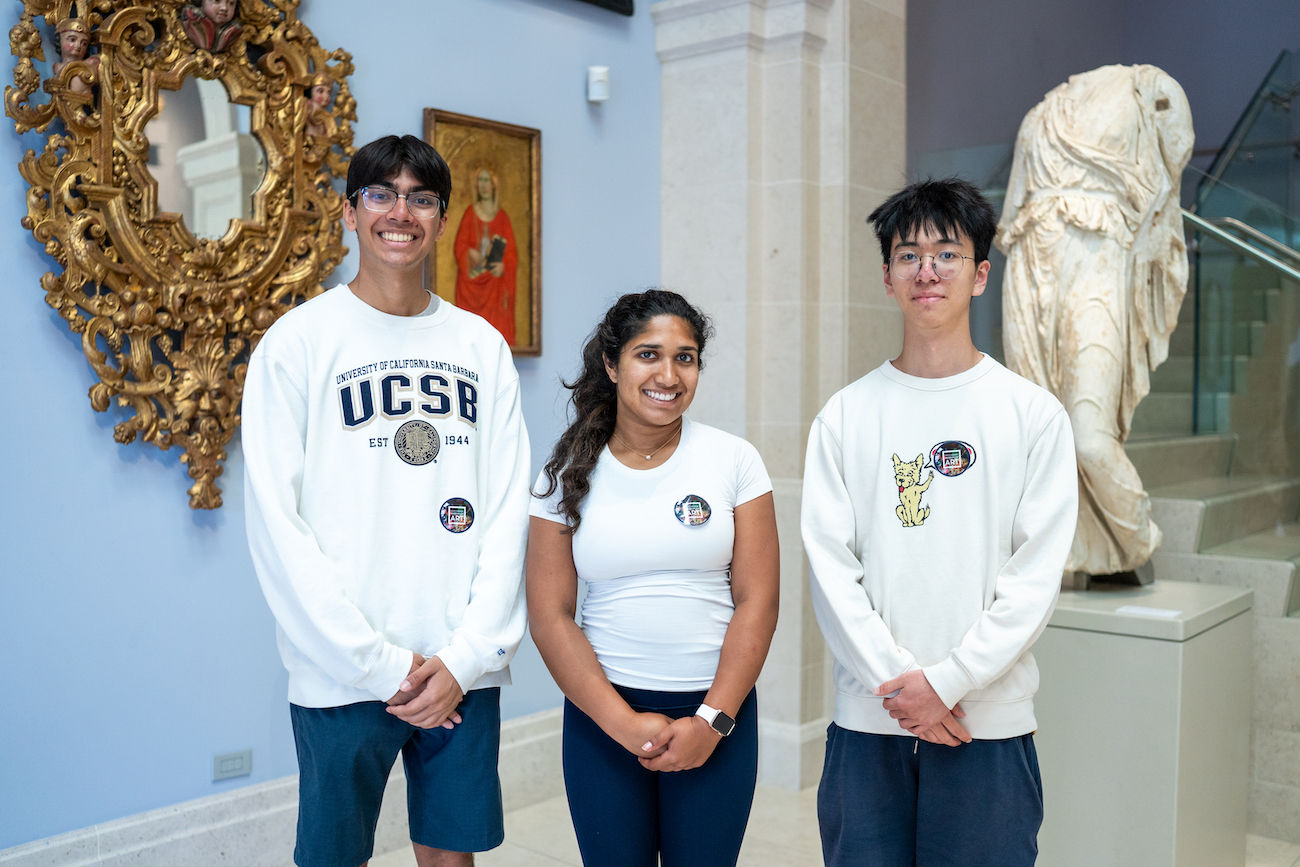
Application Requirements
Application
The online application includes:
Transcript – You will be asked to upload a transcript that shows your entire high school academic history. You can ask your school or counselor for a copy of an unofficial transcript to submit with your application. It must include the first trimester or semester grades for the 2023–2024 academic school year . Transcripts will be checked and verified before applications are reviewed.
Personal Statement – In a 500 word maximum essay, please tell us why you want to participate in SRA, the reason you selected a particular research track(s), and something unique about you for the admissions committee to know.
Short Responses – This series of questions allows us to get to know you better. In 150 words or less for each response, we will ask you to:
Briefly share what you specifically hope to learn from the track(s) you have chosen.
What skills, interests, or talents do you possess that will enable you to succeed in the chosen track(s)?
Create a hashtag describing you and/or your life and elaborate on why you chose it.
International Students: TOEFL/English language proficiency exam scores are NOT needed for International applicants.
Scholarship application (optional)
A limited number of scholarships are available and awarded based on need, qualifications, and availability. Priority is given to California residents. If you are interested in applying for a scholarship, you can indicate your interest within your online program application.
If you are admitted into the program, your guardian will receive an email to complete the scholarship application. Your guardian will be required to submit the following:
2023 Federal Tax returns (e.g., 1040, 1040EZ)
2023 W2 forms (if applicable)
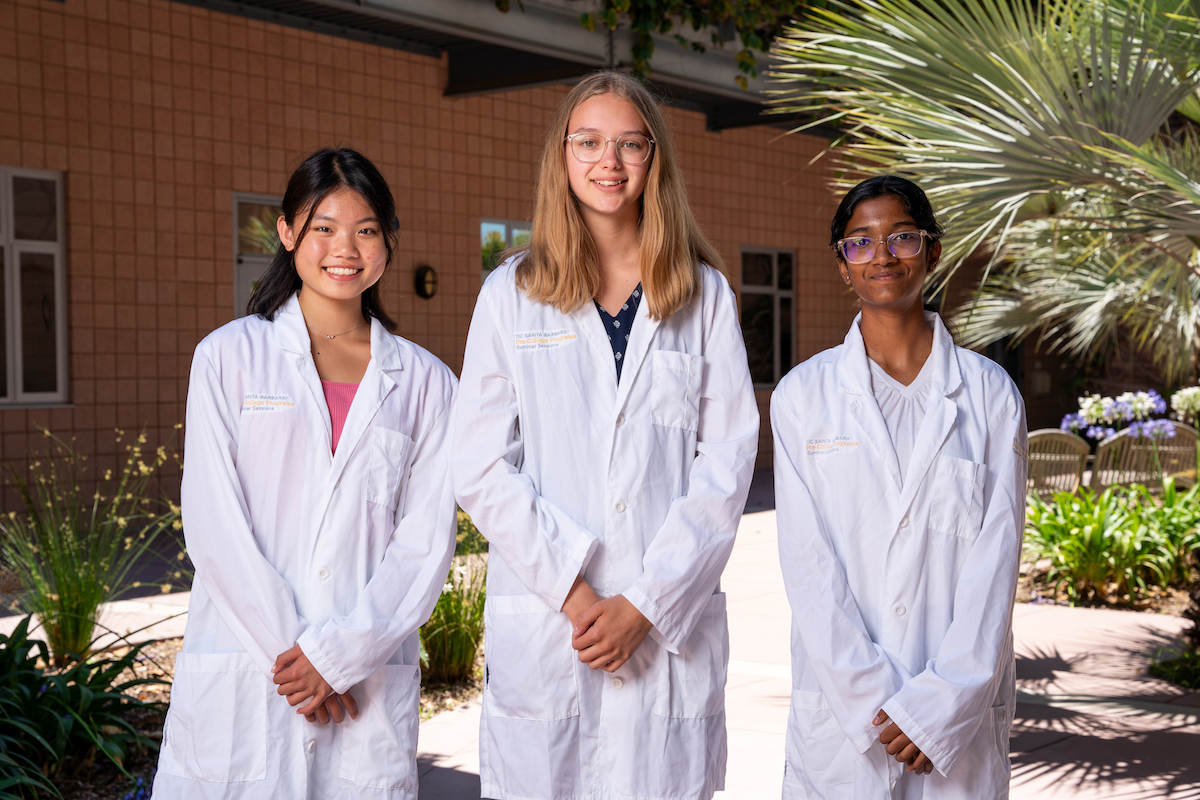
Admission Process & Decision
Students complete an online application by April 1, 2024.
Applicants are notified via email when their application is complete.
Completed applications move on to the review stage.
Applicants will receive their admission decision approximately two to four weeks after receiving their completion email.
Admission decisions are made on a rolling basis and communicated via email directly to the applicant.
For more information about the program or to inquire about the application process, please contact: [email protected]

- Got a Scoop?
- Arts & Entertainment
- Food & Drink
- Real Estate
- Indy Parenting
- Cover Stories
- Classifieds
- Create Event
UCSB Research Talks Reopen to the Public
UCSB Offers 'Groundbreaking Research/Innovative Technology' GRIT Talks at Campbell Hall Through July 24
Share this:
- Click to share on Facebook (Opens in new window)
- Click to share on X (Opens in new window)
- Click to email a link to a friend (Opens in new window)
- Click to print (Opens in new window)
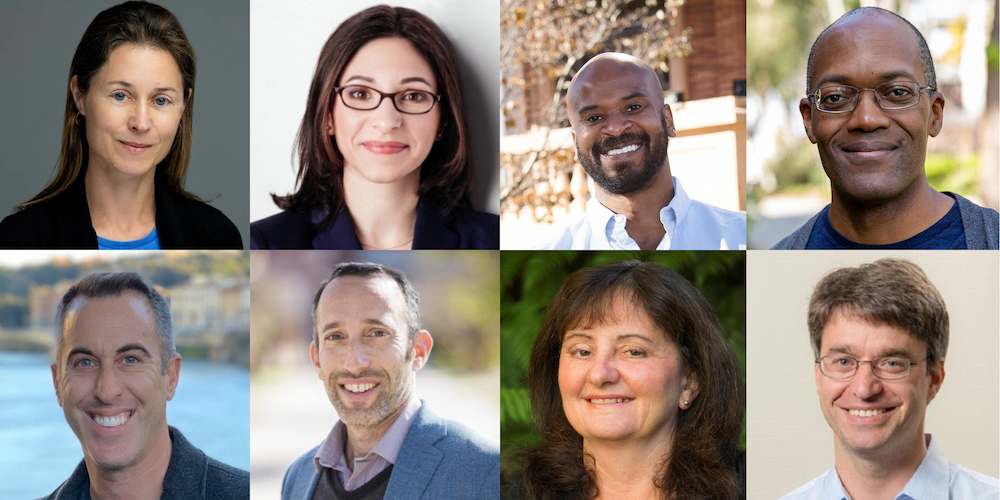
Despite the absence of students flooding lecture halls, UCSB still offers plenty of academic events in the summer, including the “Groundbreaking Research/Innovative Technology,” or GRIT Talks lecture series. The talks are hosted at Campbell Hall every Monday and Wednesday starting at 5:30 p.m. The talks will continue until July 24 and are professionally filmed for global distribution on UCTV starting in the fall.
Each summer, notable faculty are invited to share their expertise in research and the ongoing impact of their work. This year’s talks feature faculty from a variety of academic departments including Mechanical Engineering, Philosophy, and Materials. Each talk is 28 minutes, followed by a half-hour Q&A session where attendees can engage with the presenters through microphones set up near the front of the lecture hall.
For the first time since 2020, this series will be open to the public and audience members are encouraged to ask questions about the speakers’ research and ongoing work on campus. Organized by UCSB’s Office of Summer Sessions, Director of Academic Programs Lina Kim told the Independent , “We are so excited to once again share with our community and the world the exciting research our faculty are conducting at UC Santa Barbara.”
Pre-college high school students participating in the Research Mentorship Program (RMP) and Summer Research Academies (SRA) will also be attending the event alongside the public. Both highly selective and intensive research programs give students the opportunity to engage with ongoing research on campus and their eager rush during the Q&A session speaks to the students’ excitement to ask questions. It is advised that guest attendees arrive early enough to find a seat amidst the eager sea of students.
“We want to showcase how our researchers are pushing boundaries in interdisciplinary fields and changing lives through innovative advances,” Kim said.
The next GRIT Talk on July 15 will dive into the philosophy and pragmatism research of Aaron Zimmerman. The following talks will cover an anthropological perspective on the U-shaped Happiness Curve by Michael Gurven on July 17 and a discussion on AI and security by Christopher Kruegel to close out the series on July 24.
Doors open around 5:15 p.m. and close at 5:30 p.m for filming. The complete list of speakers, their departments, and their talk titles can be found here.
Related Posts

UC Santa Barbara and Tuskegee University Join Forces

Creativity and Community on Full Display at the Raab Writing Fellows Showcase at UC Santa Barbara
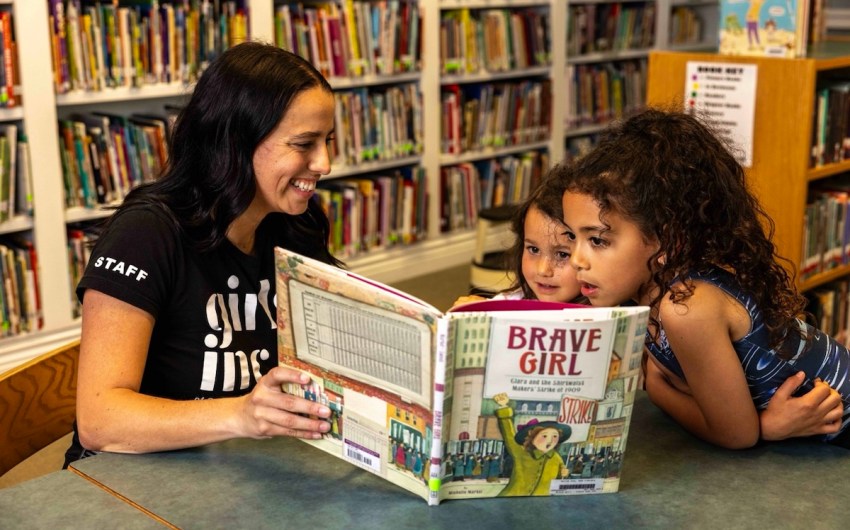
Girls Inc. of Greater Santa Barbara Partners with S.B. Unified to Provide Free STEM Programs
- Recent News

‘Beaches Are in Trouble’: Sea-Level Rise Coming for Santa Barbara County Coastline

Evacuations Expand Thursday as Lake Fire Exceeds 34,000 Acres Overnight

Jackson Browne Announces Special Santa Barbara Show to Celebrate Lobero Building’s Centennial

Update: New Evacuations Ordered Friday After Lake Fire Burns Half of 6,000-Acre Sedgwick Reserve in Santa Ynez Valley

New California Law Limits Security Deposits to One Month’s Rent
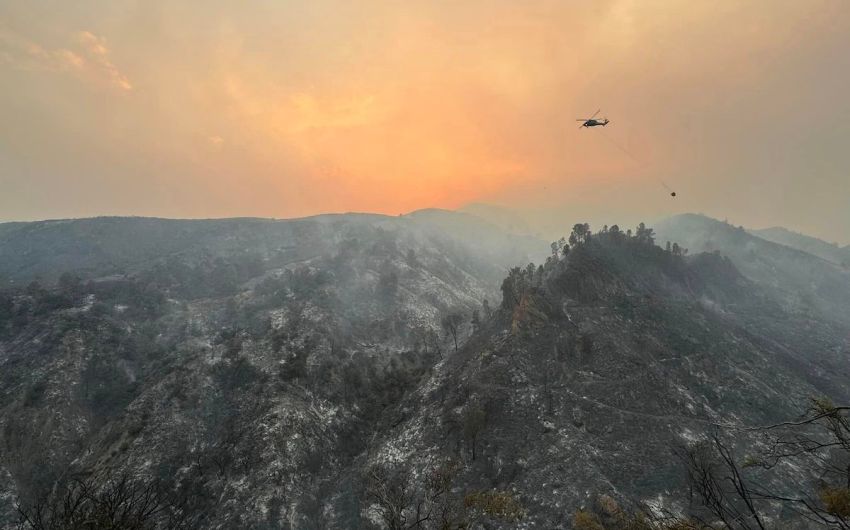
More Lake Fire Evacuations Canceled Wednesday as Containment Reaches 42 Percent

All Booked | Knowledge is Power

2023 CNPA California Journalism Awards

Meet our Mickey Flacks Fellow Margaux

Foxen Canyon Wine Trail Event Shopping Event Moved to Buellton Location

Thu, Jul 18 6:30 PM
Carpinteria
Open Mic Night at brewLAB in Carpinteria

Thu, Jul 18 5:00 PM
Meet Me in Old Town Goleta Block Party

Thu, Jul 18 6:00 PM
Santa Barbara
Concerts in the Park | Chase Palm Park

Fri, Jul 19 11:00 AM
Santa Barbara Antique & Vintage Show & Sale

Fri, Jul 19 5:30 PM
Photography in the Butterfly Pavilion

Fri, Jul 19 6:00 PM
3rd Annual BINGO FUNdraiser

Fri, Jul 19 7:30 PM
Dijo Productions Presents “HEROES”
Sat, Jul 20 11:00 AM
Sun, Jul 21 11:00 AM
Thu, Jul 25 6:00 PM

Sun, Jul 28 5:00 PM
S.B. Independent Indy Hops Passport Drop Party!
See Full Event Calendar
Get News in Your Inbox
Please note this login is to submit events or press releases. Use this page here to login for your Independent subscription
Username or Email Address
Remember Me
Not a member? Sign up here.
- Request IT Support
- Supervisor & Manager Resources
- Assessment Initiative
Community of Practice
According to cognitive anthropologists, Jean Lave and Etienne Wenger , Communities of Practice are groups of people who share a concern or a passion for something they do and meet regularly together to learn how to do it better. To support the professional development process at Student Affairs, ongoing Community of Practice (COP) training and work group sessions are offered on a monthly basis. The topics vary to include assessment training and preparation for the annual report. All staff is welcome to attend, bring their tech devices and assessment questions and ideas.
Community of Practice Working Sessions Dates
Please check back for future Community of Practice Events. Feel Free to check out past Community of Practice Events Videos on COP Resources .
- Login Subscribe

UC Santa Barbara cashes in with NCAA Regional
In this article.
- Latest news Topic
- Jorge Mercado Author
By Jorge Mercado Monday, July 8th, 2024

- Subscribers: LOG IN or REGISTER for complete digital access.
- Not a Subscriber? SUBSCRIBE for full access to our weekly newspaper, online edition and Book of Lists.
- Check the STATUS of your Subscription Account.

newsletter sign-up


IMAGES
COMMENTS
350 words. Please respond to any 4 of the 8 questions below.We realize that not all questions apply to all applicants, so be sure to select the 4 questions that you believe give us the best information about you.All 8 questions are given equal consideration in the application review process. Responses to each question should be between 250-350 ...
Fortunately, writing essays is something that should feel familiar to you by this point in your education, however, there can be more than what meets the eye in the various formats and prompts that are provided for application essays. ... UC Santa Barbara Career Services . University of California, Santa Barbara. Career Services, Bldg. 599 ...
You may be familiar with undergraduate application essays for UC's personal insight questions upon applying to UCSB, and graduate application essays share many similarities. ... UC Santa Barbara Career Services . University of California, Santa Barbara. Career Services, Bldg. 599. Santa Barbara, California 93106-7140. Phone: (805) 893-4412.
Phone: 805-893-7488 [email protected]. Campus MailCode: 3010 Campus Maps. Main office hours Monday through Friday 9am-12pm and 1-4pm
As you write your UC personal essays think about the most relevant and significant experiences that best reflect your individual circumstances for the topics below. You can use one of the topics to answer more than one of the insight questions. ... Santa Barbara. El Centro (Bldg 406) Santa Barbara, CA 93106. Connect (805) 893-7260; Facebook ...
After successfully completing Writing 2, students will have developed critical writing, reading, and analysis strategies that they can use in upper-division classes in the Writing Program and the university. Writing 2 satisfies the Area A1 requirement. Writing 2E. Academic Writing for Engineers. 4 units.
The Entry Level Writing Requirement is a University of California requirement that all students must fulfill during their first year. This requirement applies to students in all three colleges at UCSB. Students at UCSB must satisfy the Entry Level Writing Requirement in one of the following ways: score 3 or higher on the AP Seminar exam, the AP ...
Writing services are available for any writing at any stage of the writing process, from analyzing a prompt and brainstorming to polishing a final draft. Meet with a writing tutor if you are struggling to get started, if you aren't sure how to structure a paper, or if you need help citing your sources. ... hourglass timer icon uc santa barbara ...
Writing an admission essays for UC Santa Barbara is always quite a job. So, we prepared free application essays 📝 to make your life easier.
Remember, the personal insight questions are just that—personal. Which means you should use our guidance for each question just as a suggestion in case you need help. The important thing is expressing who you are, what matters to you and what you want to share with UC. 1. Describe an example of your leadership experience in which you have ...
Successful UC Santa Barbara Essay. "Refereeing in sports is a position that never wins. There is no room for error, and even when one is right, they are wrong to half the crowd. There is no level in the career, from little kids to the world cup, where the audience gets any nicer. Despite this, being an arbiter pays off.
Freshman Applicants. We are thrilled you are considering UC Santa Barbara as your home for the next few years. If you are a senior in high school or if you have recently graduated and have not enrolled in another college or university, you should apply for freshman admission. If you've completed college courses during high school - including ...
A unique pilot program at UC Santa Barbara focuses on writing for diverse voices, creating a new kind of space between a Hispanic Serving Institution and an HBCU (Historically Black Colleges and Universities). Ten Booker T. Washington Scholars from Alabama's Tuskegee University — an HBCU — will spend the summer at UCSB — an HSI — taking classes in screenwriting.
School location: Santa Barbara, CA. This school is also known as: UCSB, UC Santa Barbara, University of California, Santa Barbara. Admissions Rate: 29.1%. If you want to get in, the first thing to look at is the acceptance rate. This tells you how competitive the school is and how serious their requirements are. The acceptance rate at UCSB is ...
Contact the Writing Program's Undergraduate Advisor. In addition to advising students about taking writing courses at UCSB, the Undergraduate Advisor can also enter student's transfer information into UCSB's data system, clearing the student's writing prerequisites. Students cannot enroll in upper division Writing Program courses, or other ...
Fortunately, writing essays is something that should feel familiar to you by this point in your education, however, there can be more than what meets the eye in the various formats and prompts that are provided for application essays. ... UC Santa Barbara Career Services . University of California, Santa Barbara. Career Services, Bldg. 599 ...
Personal Statement - In a 500 word maximum essay, discuss your goals, values, and reasons for wanting to attend RMP. Writing Sample ... Santa Barbara. Summer Sessions, 2214 SAASB. Santa Barbara, California 93106-2010. [email protected]. Join the Line. to speak with a representative. Programs. Courses.
Must be eligible to receive financial aid (grants, scholarships, or loans) and have filed a FAFSA for most Gaucho Scholarships. Average Award Amount. $2,000 - $2,500. Application Deadlines. Fall/Northern Hemisphere Year 2024-25 Programs: March 1, 2024 by 11:59pm PT. Winter/Spring/Southern Hemisphere Year 2025 Programs: May 31, 2024 by 11:59pm PT.
UC Santa Barbara students choose bicycles more than any other means of transportation, with 55% of undergraduates riding to campus on any given day. ... UC Santa Barbara and Tuskegee University launch pilot program to advance Black cultural perspectives in TV writing. Medicine + Health. New drug delivery technology promises more accurate dosing.
Degree Requirements. UC Santa Barbara's degree requirements fall into four main categories: 1. Unit Requirements. You must complete a total of either 180 or 184 units, including 60 upper-division units. UCSB courses numbered 1-99 are considered lower-division, 100-199 are considered upper-division. 2.
Graduate Program Assistant. Comparative Literature Program. 4212 Phelps Hall. University of California. Santa Barbara, CA 93106-4130. Phone: 805-893-2131. E-mail: [email protected]. Frequently Asked Questions.
The Writing Program offers lower and upper division undergraduate courses and a Professional Writing minor. Many of these courses satisfy the university's general education Area A1 and A2 requirements. Undergraduate courses focus on study of and practice with writing for diverse audiences and purposes within specific contexts.
Enter the terms you wish to search for. Main navigation. Discover Options; Gain Experience; Get Hired; Explore Grad School
Personal Statement - In a 500 word maximum essay, please tell us why you want to participate in SRA, the reason you selected a particular research track(s), and something unique about you for the admissions committee to know. ... Santa Barbara. Summer Sessions, 2214 SAASB. Santa Barbara, California 93106-2010. [email protected]. Join the ...
Creativity and Community on Full Display at the Raab Writing Fellows Showcase at UC Santa Barbara By Riley Burke | Wed Jun 05, 2024 Girls Inc. of Greater Santa Barbara Partners with S.B. Unified to Provide Free STEM Programs By Chloe Shanfeld | Mon Jun 03, 2024
UCNet (UC News and Resources) UCPath (Payroll and Benefits) Give; Request IT Support; Home; Supervisor & Manager Resources; Assessment Initiative; ... University of California, Santa Barbara. Santa Barbara, CA 93106-2036. Connect. 805-893-3651; Links and Resources. Policies and Disclosures. Campus Directory.
UC Santa Barbara hosted a NCAA Regional during the May 31 weekend, bringing in attendees and dollars. (courtesy photo) The UC Santa Barbara baseball team has done a lot of winning in the past decade, but perhaps its biggest win in recent memory was doing what no other team had done before — host an NCAA Regional.